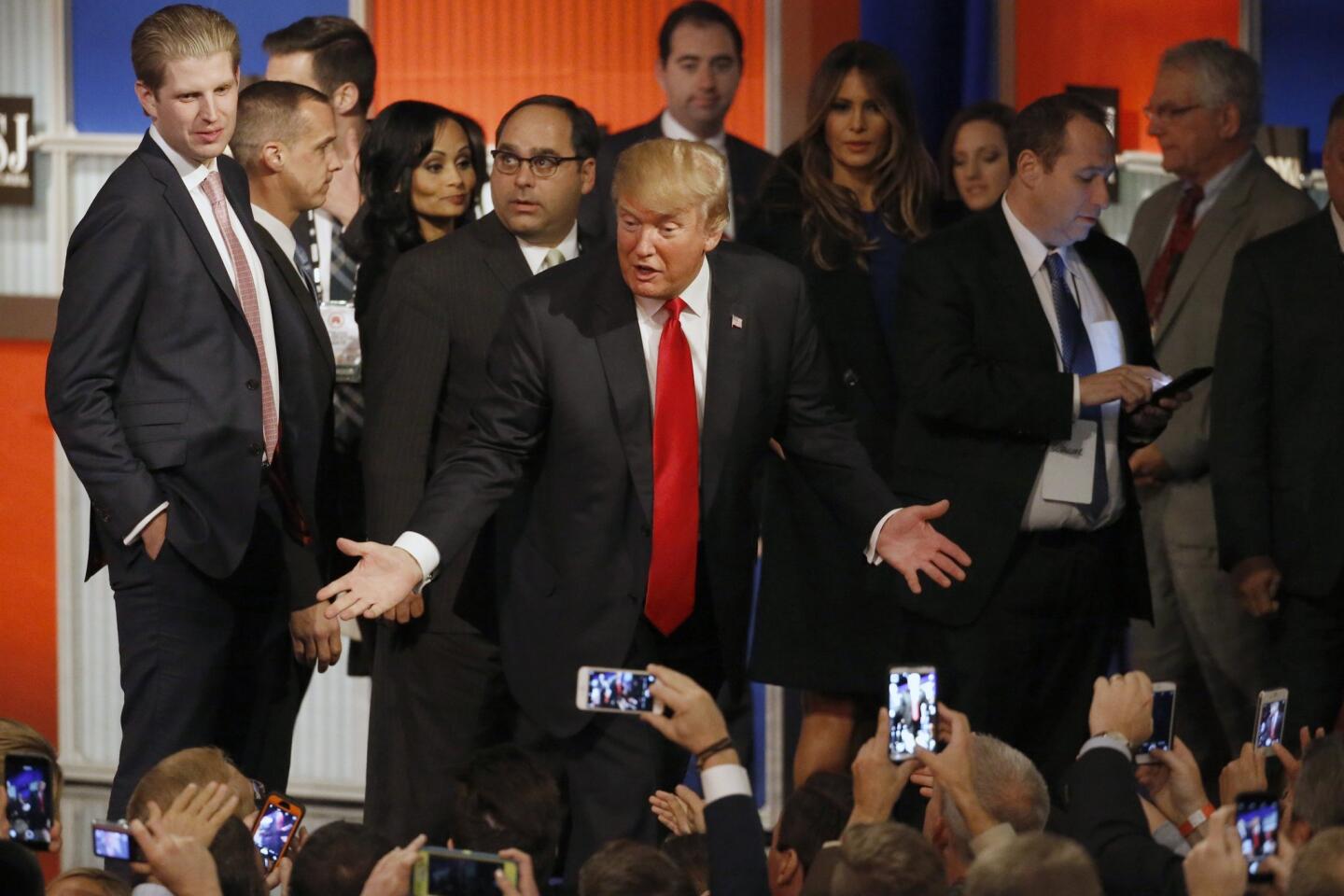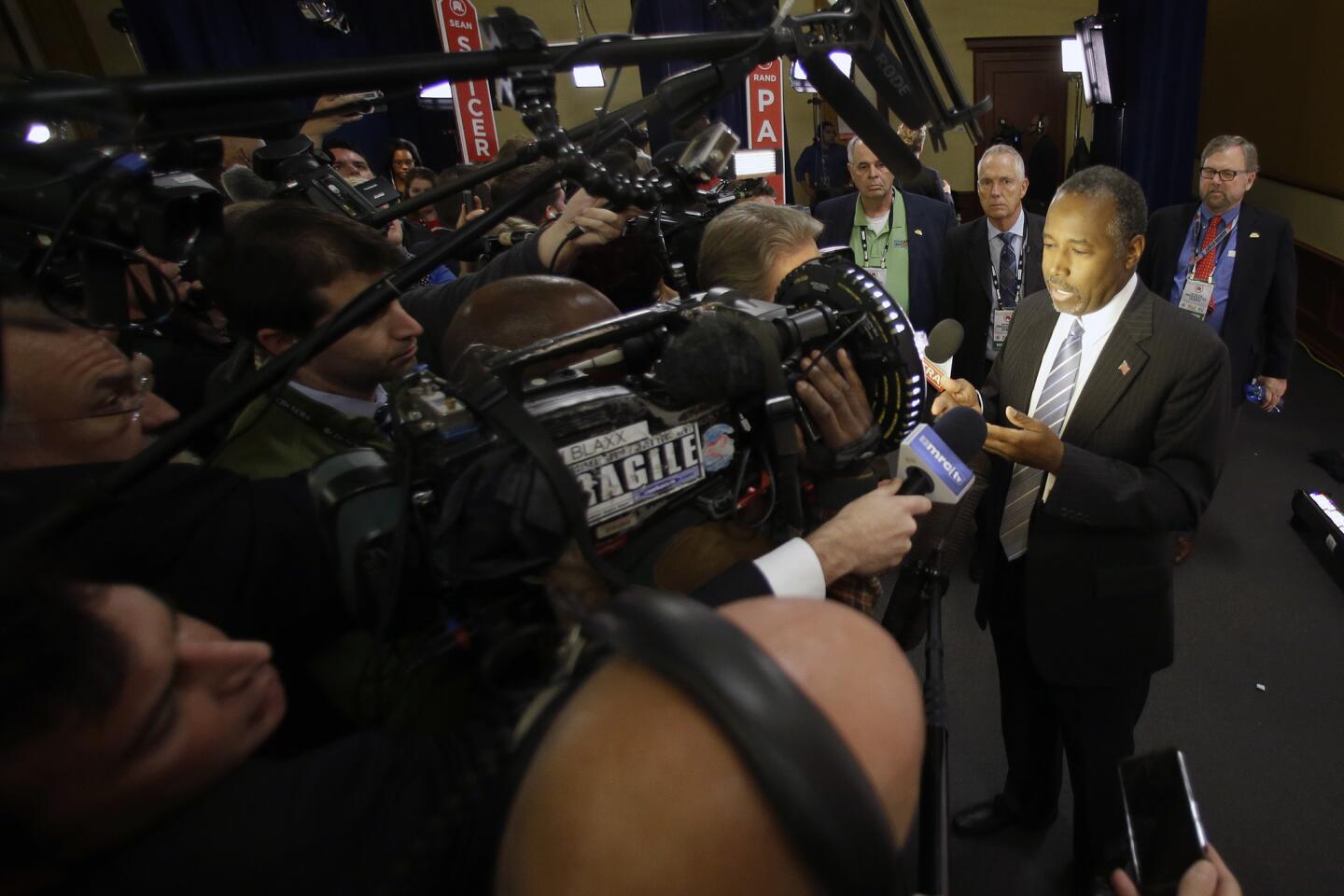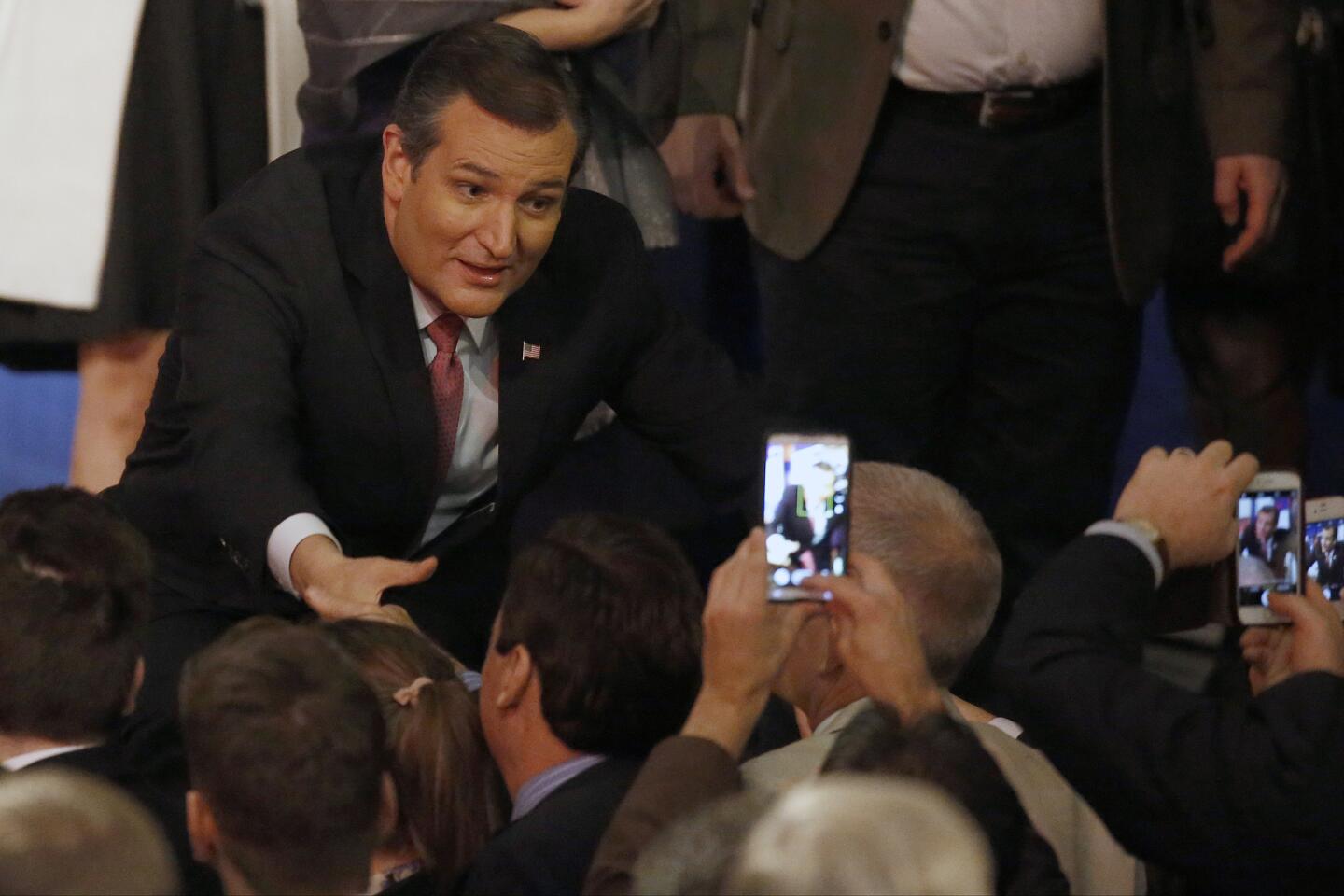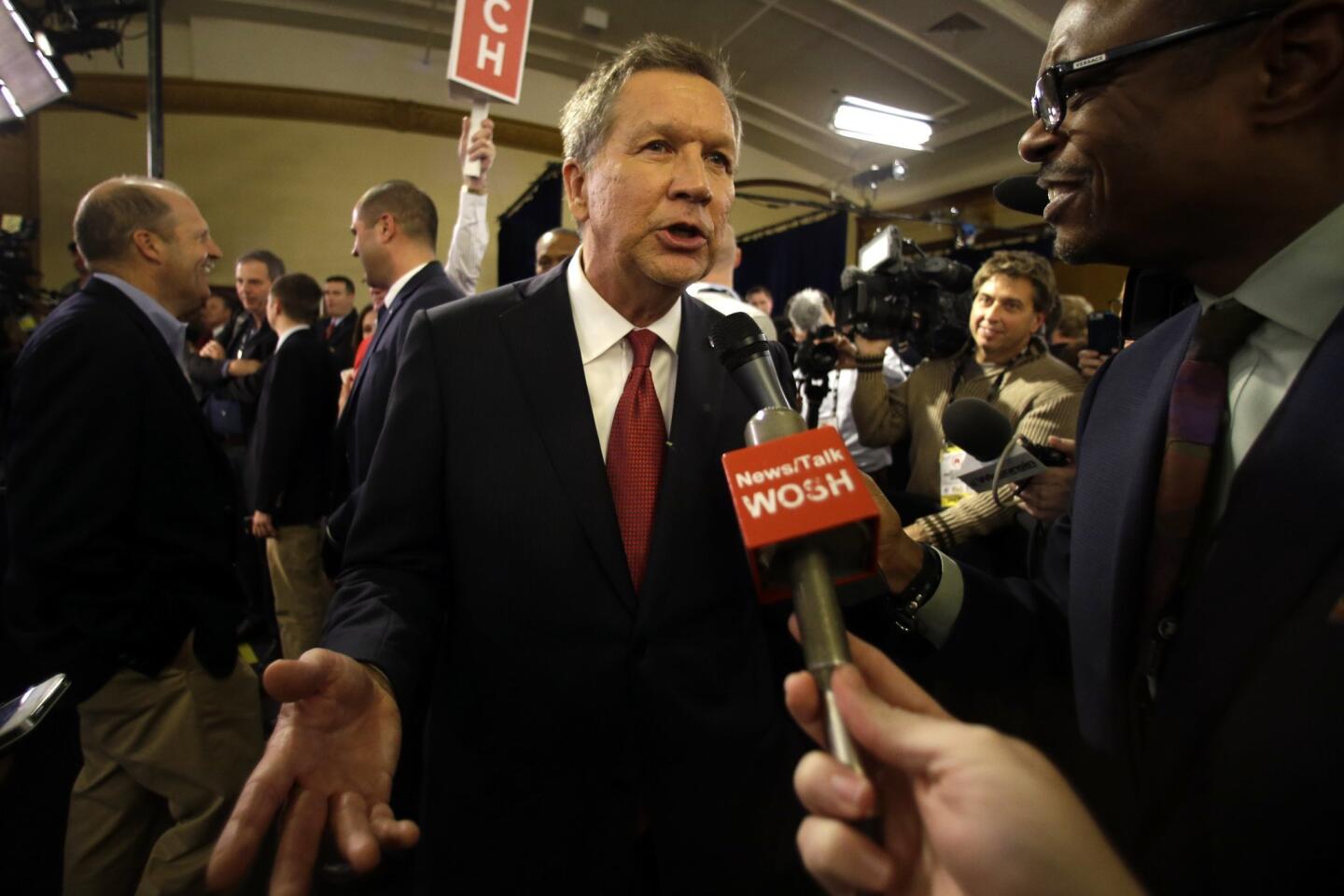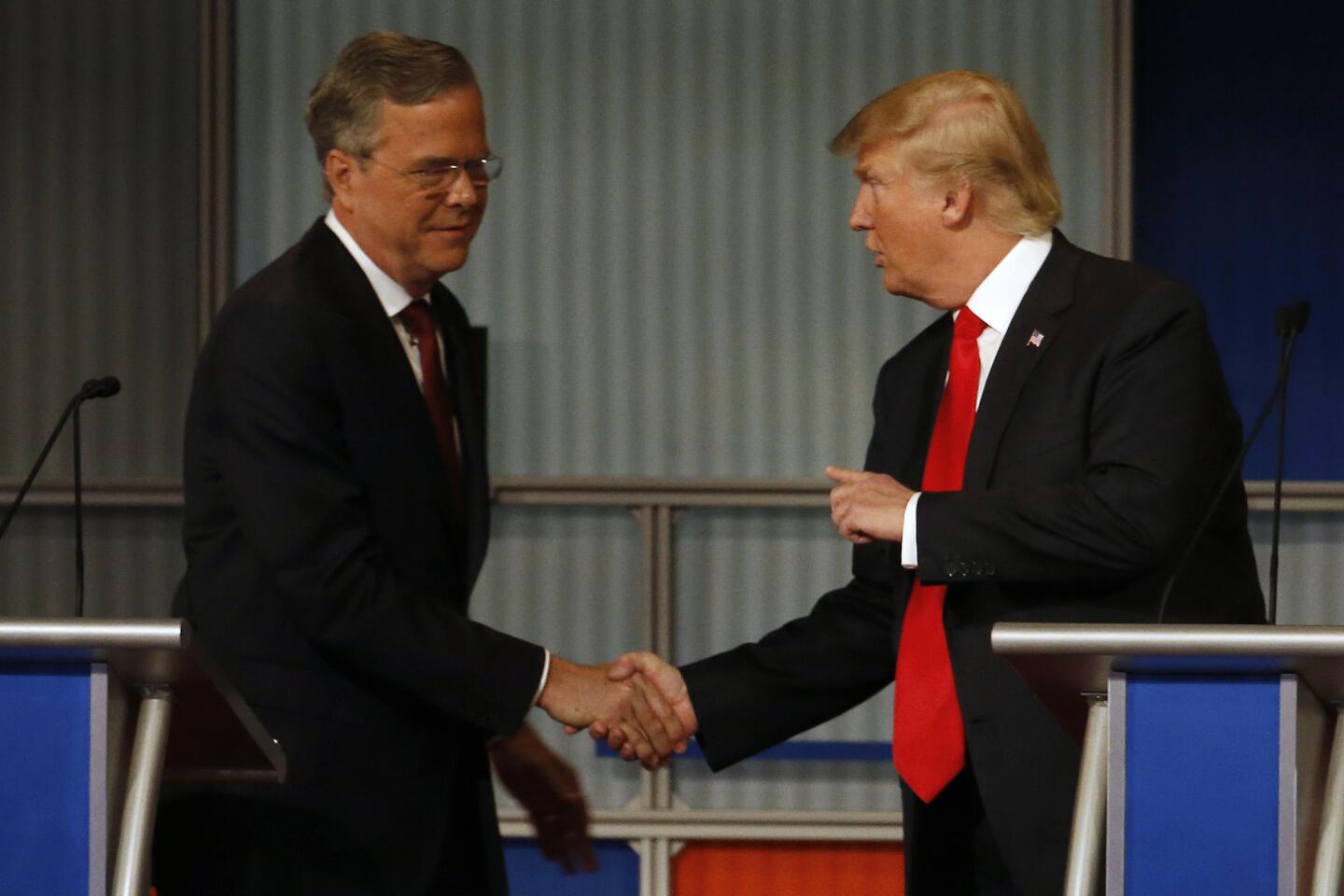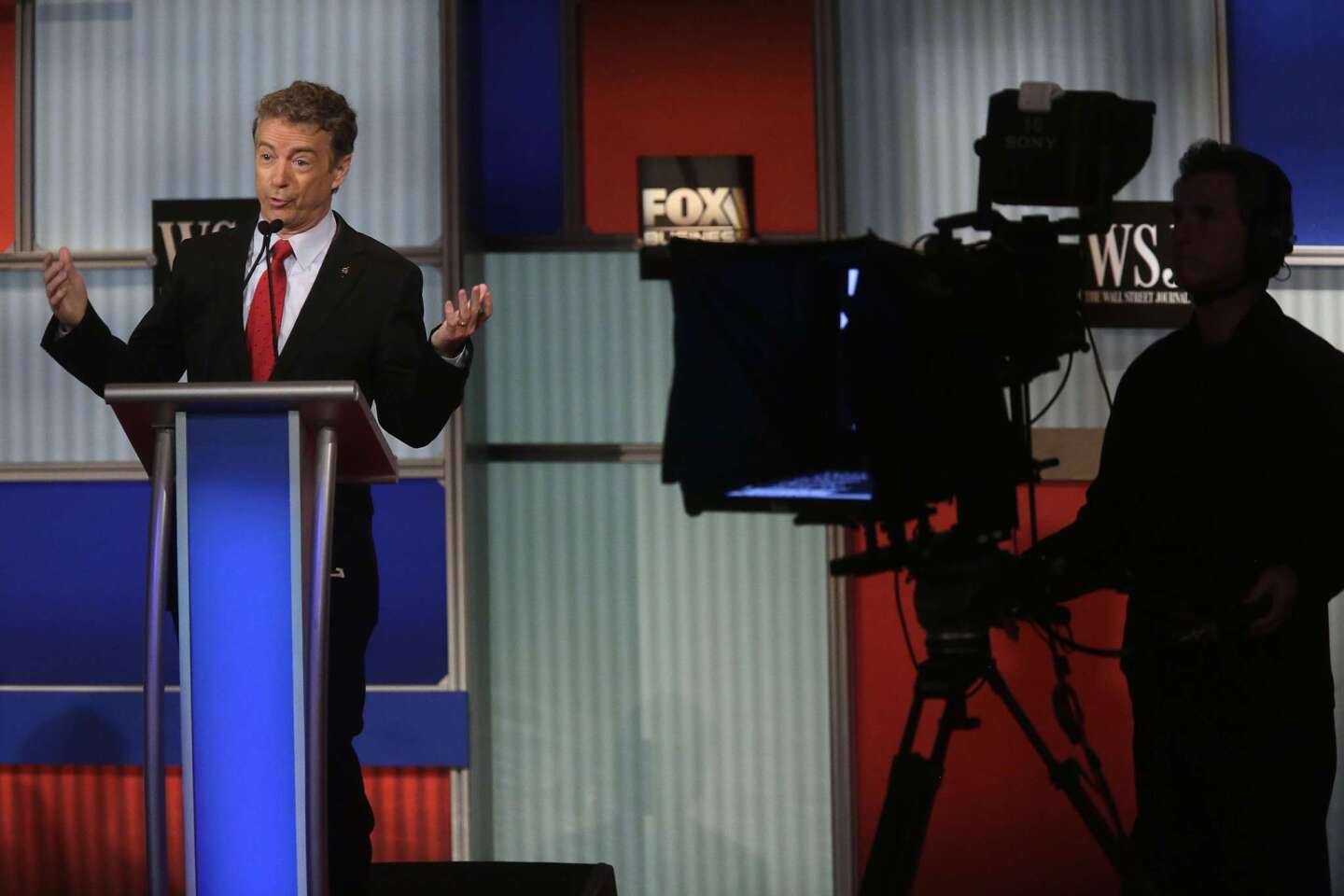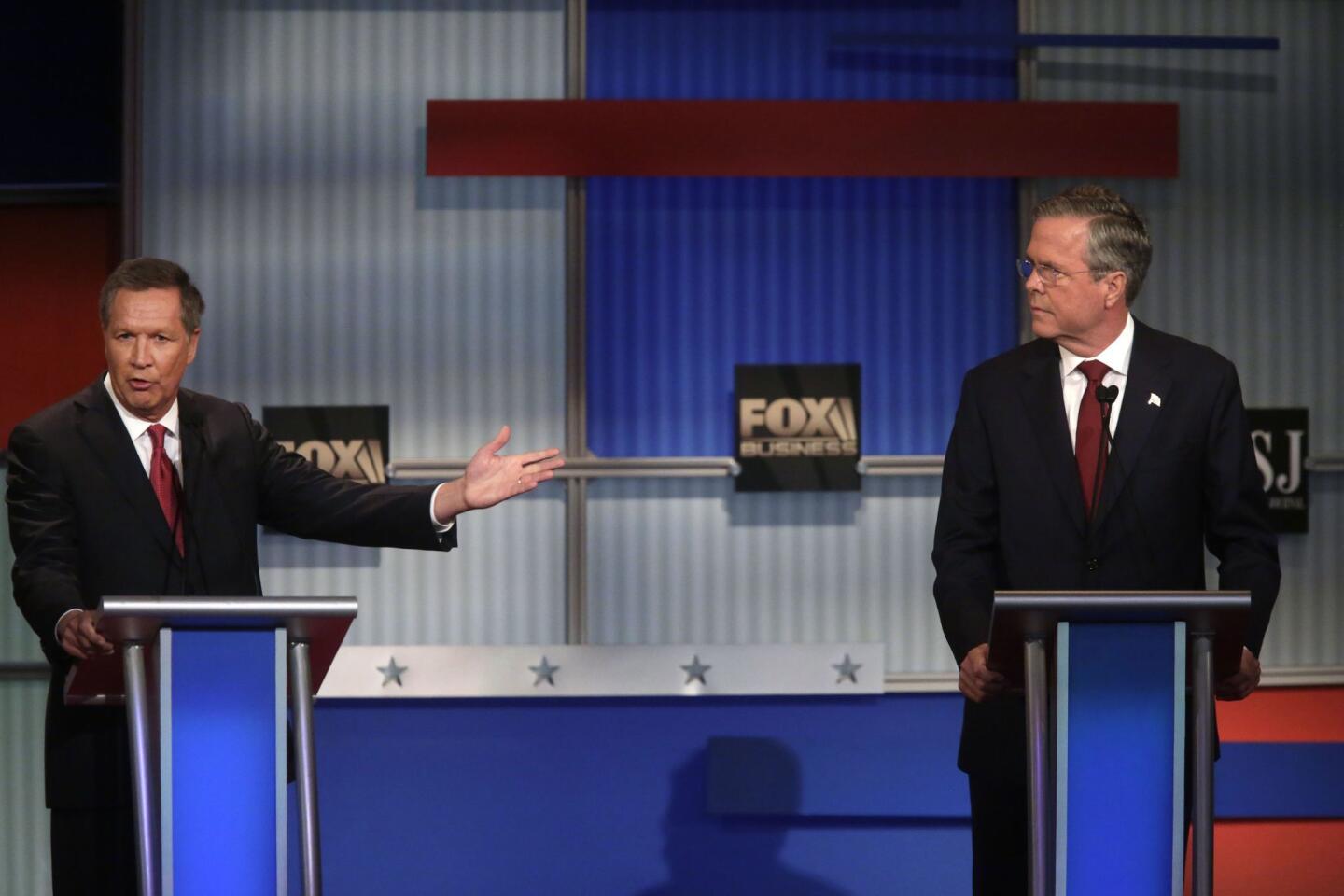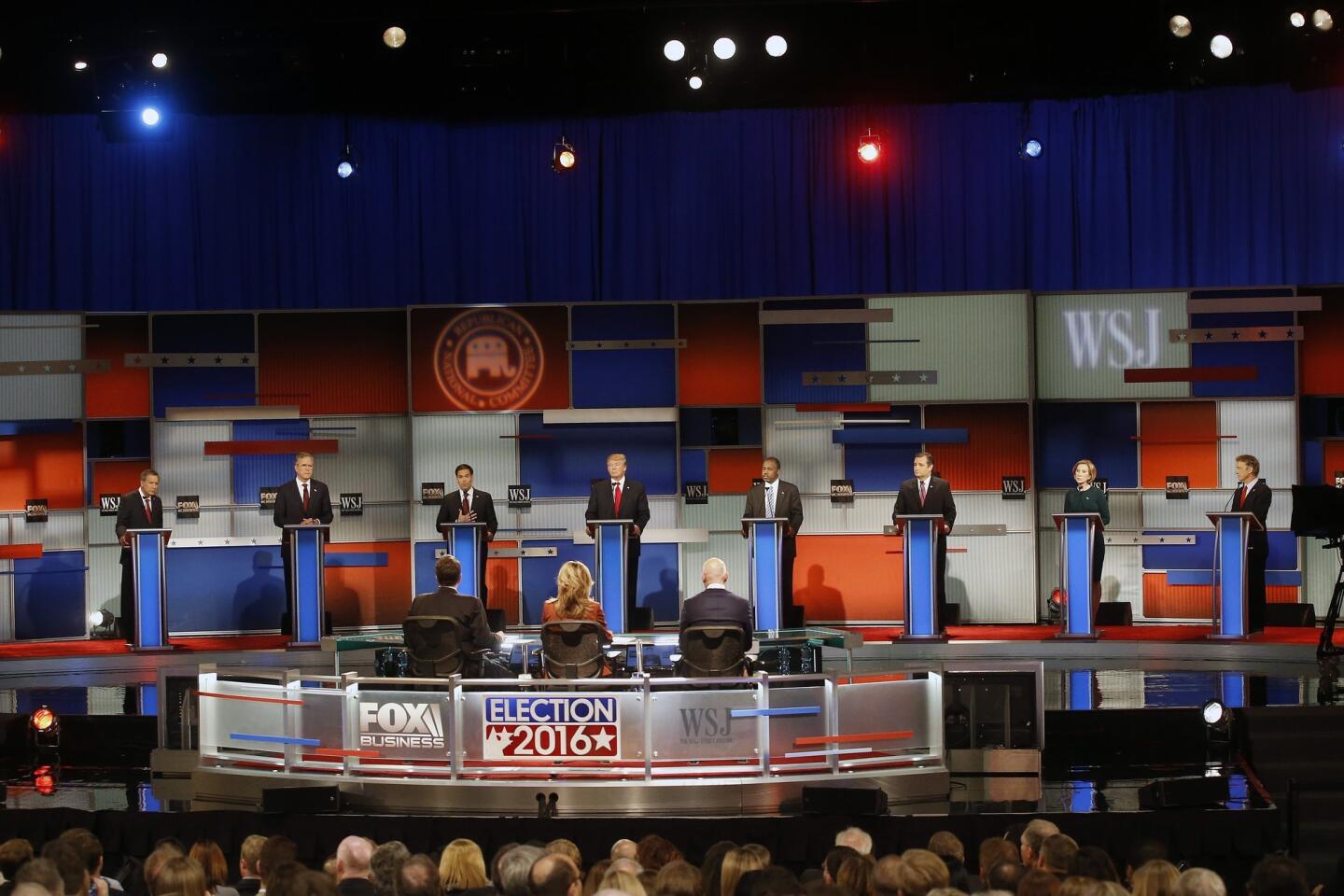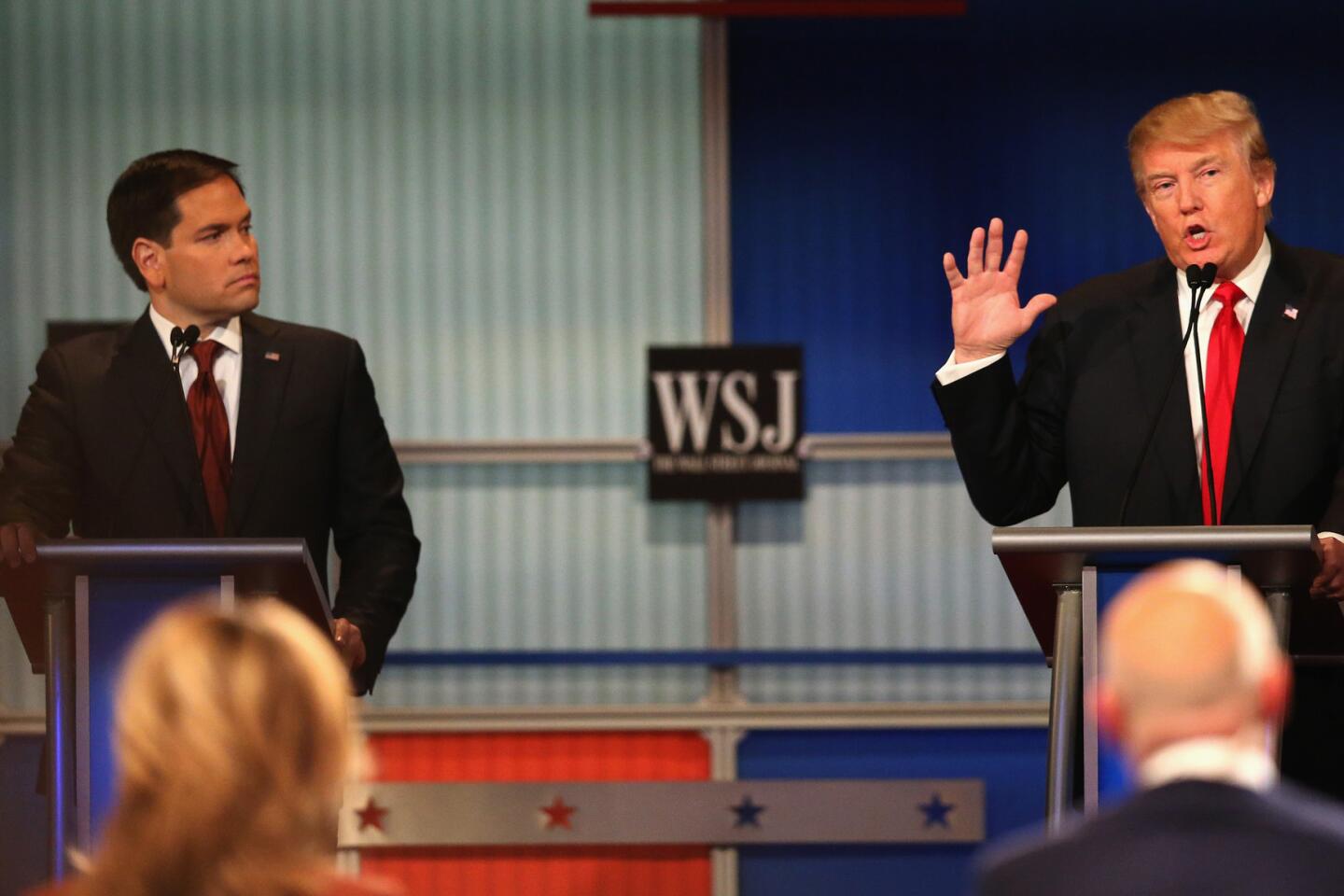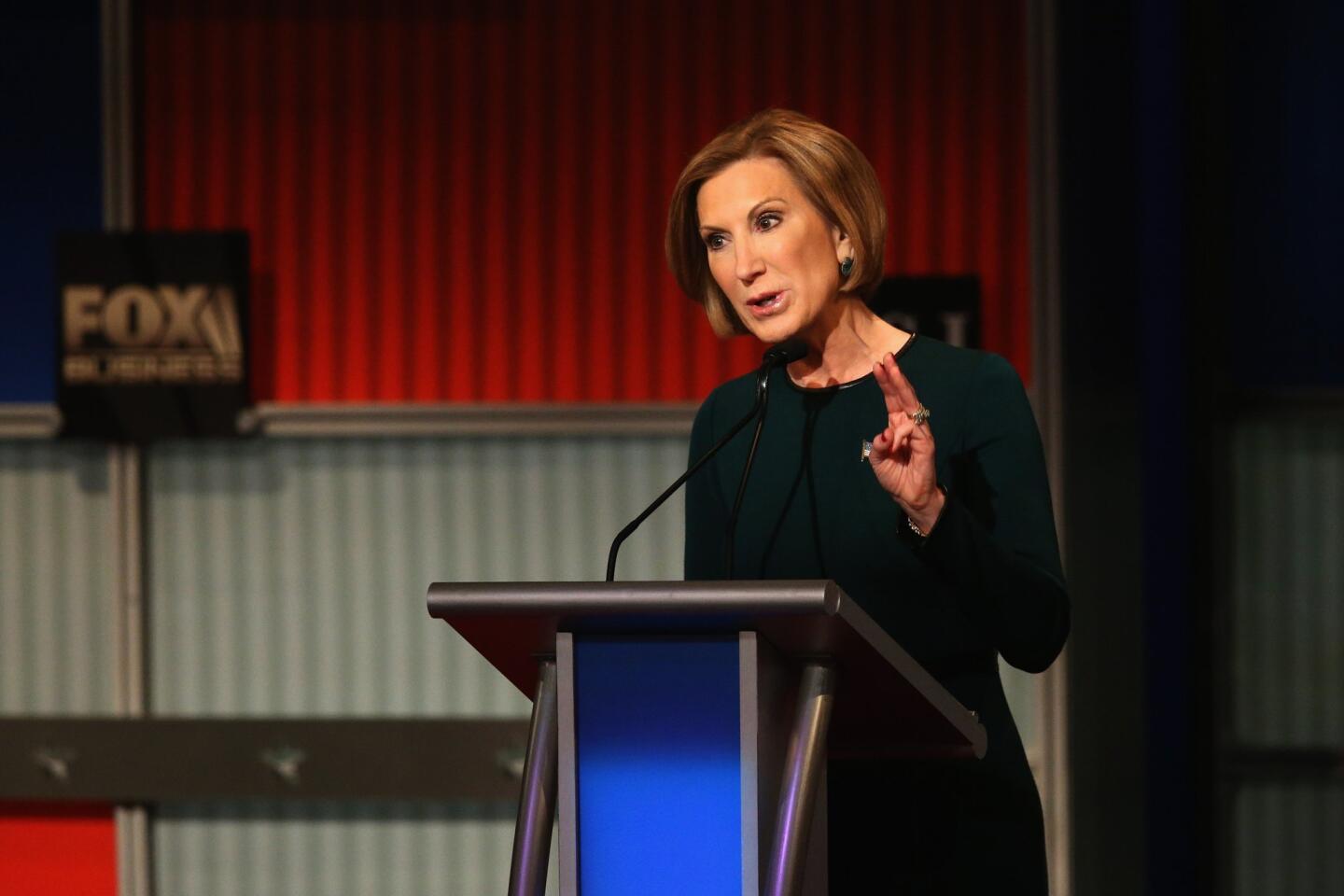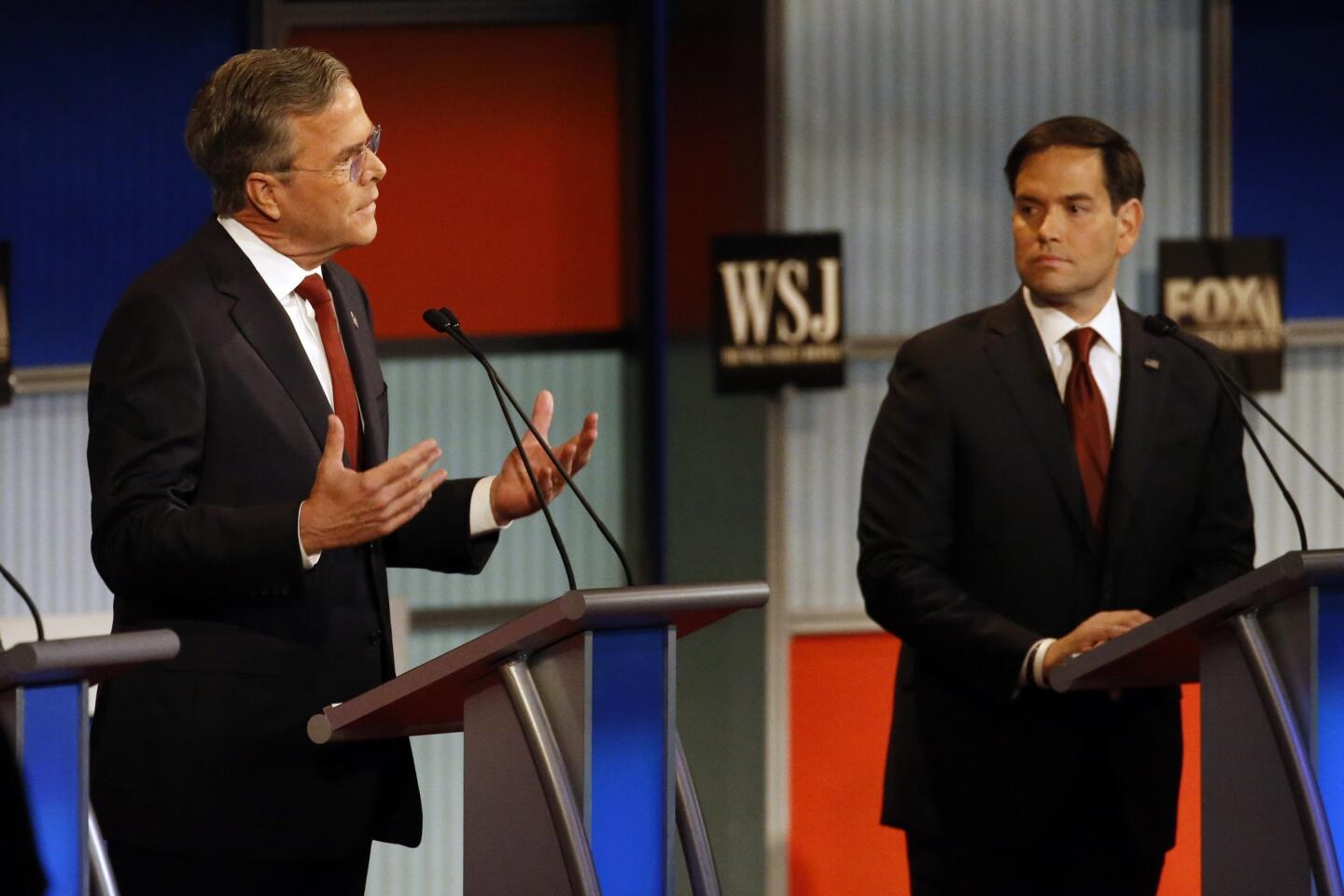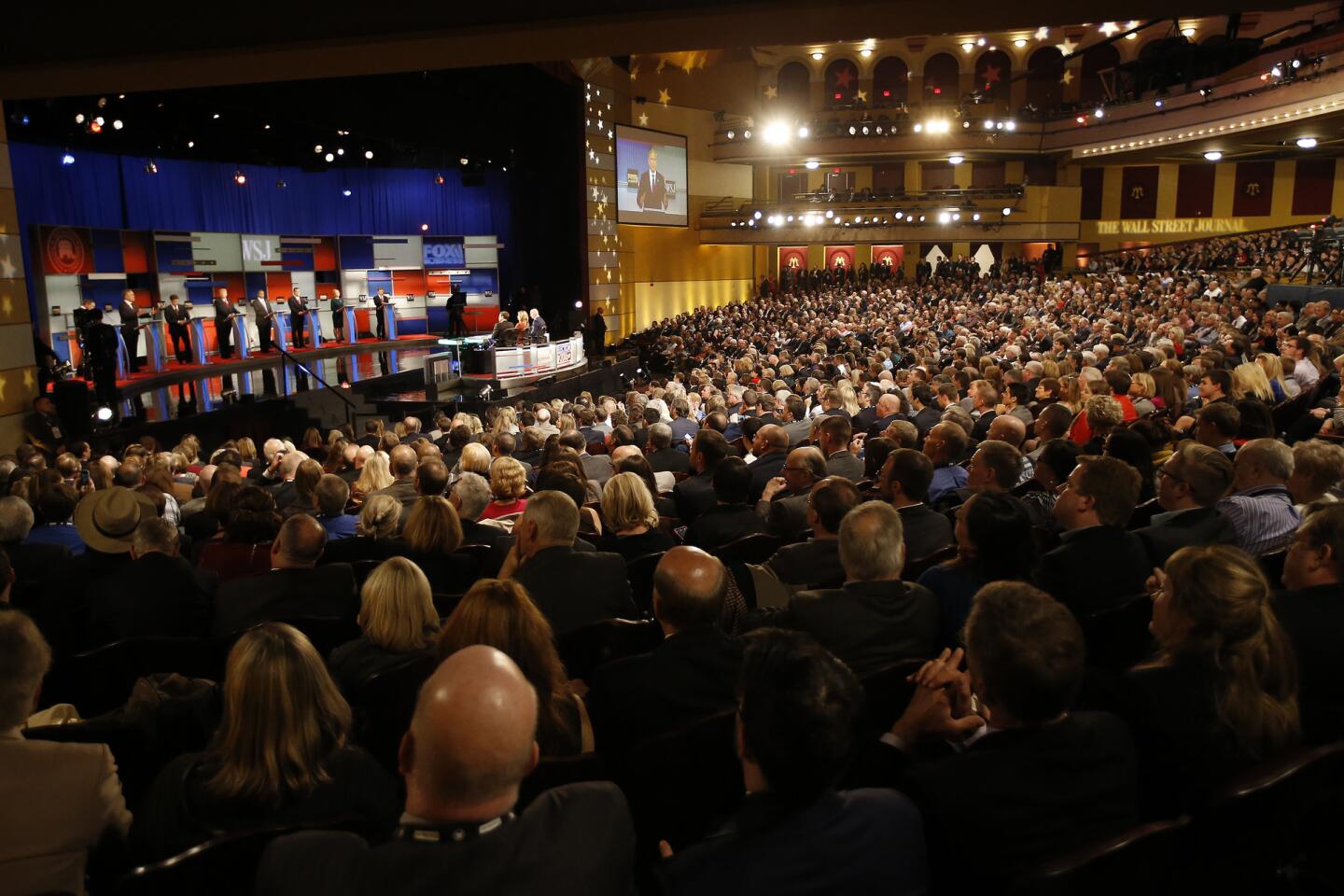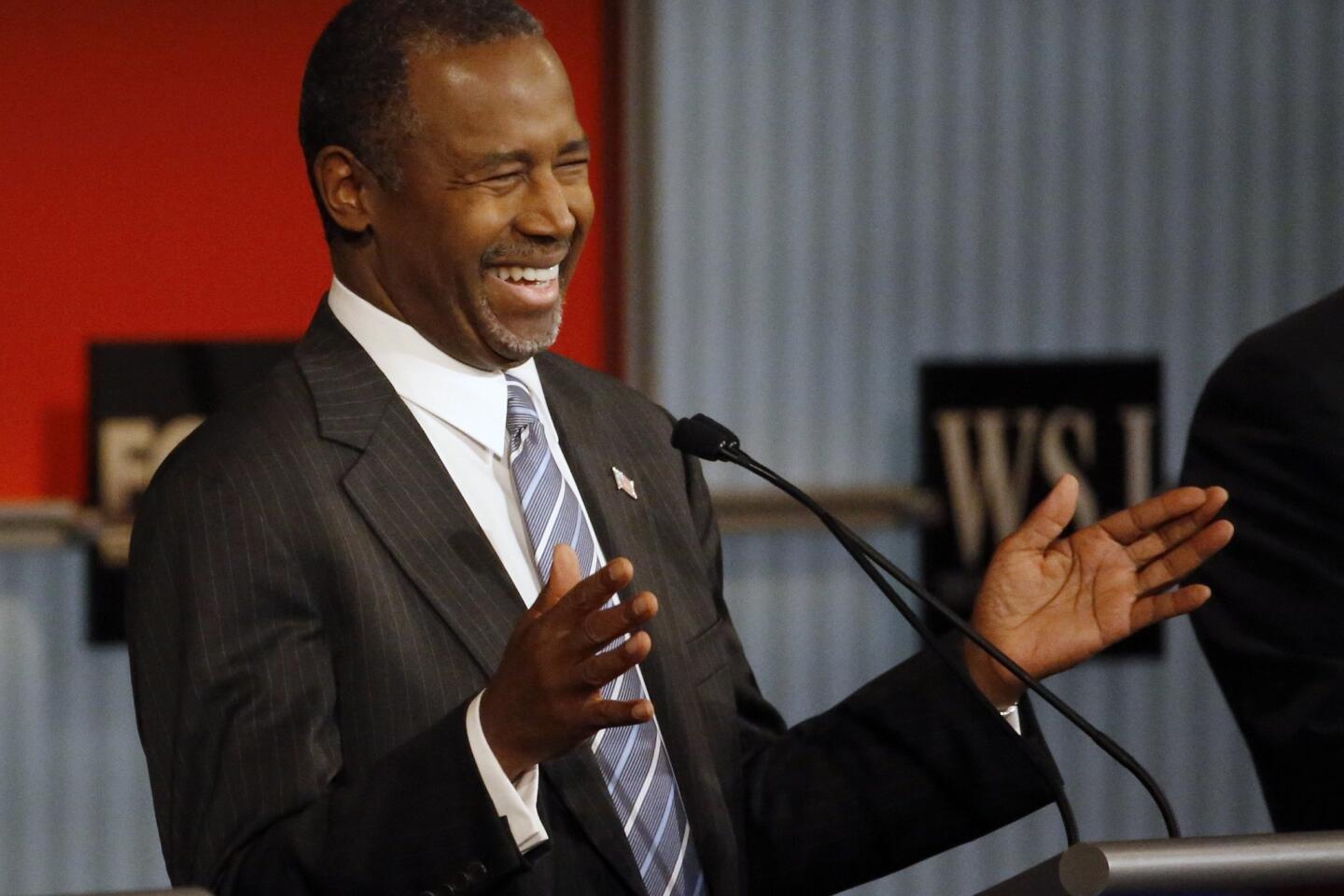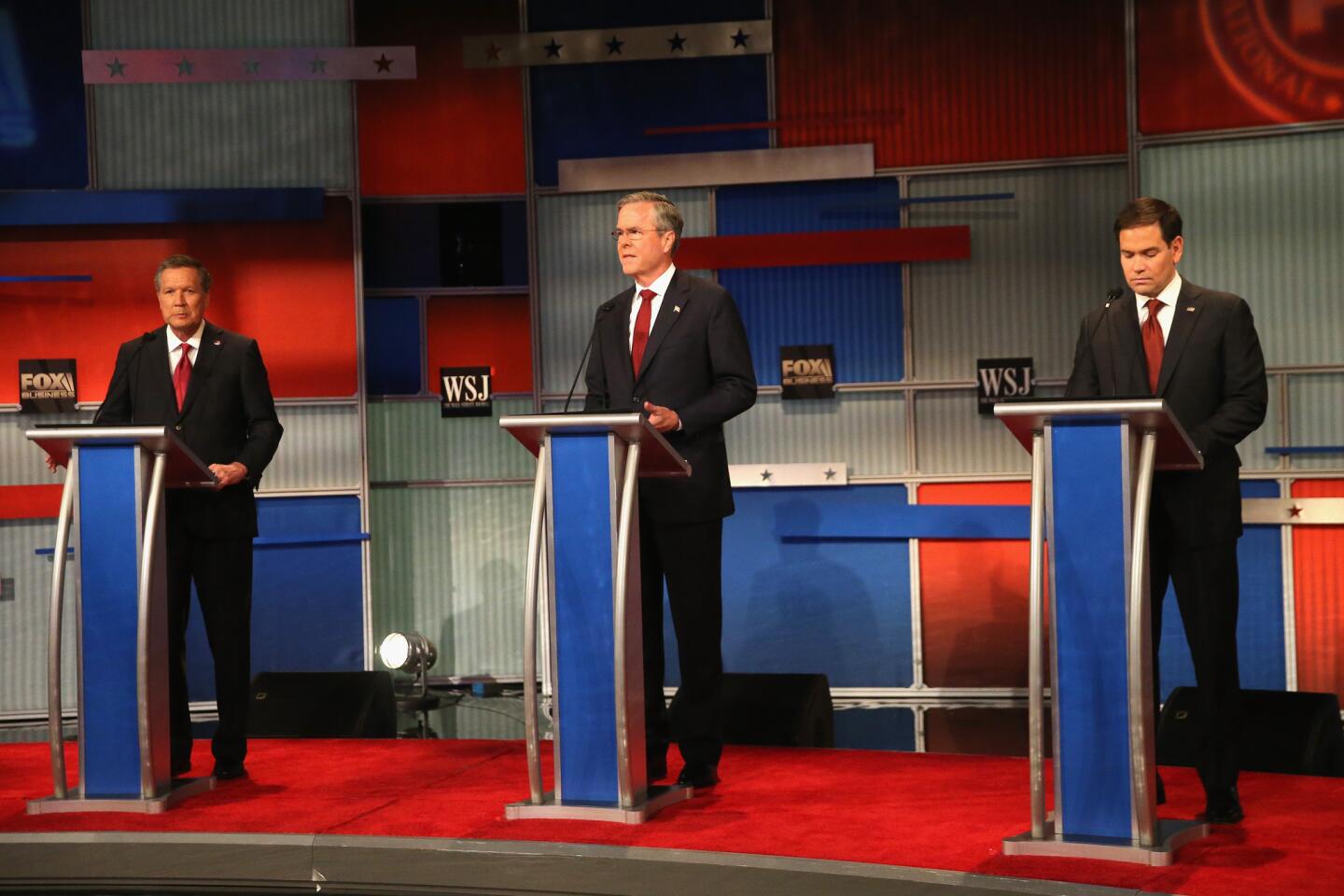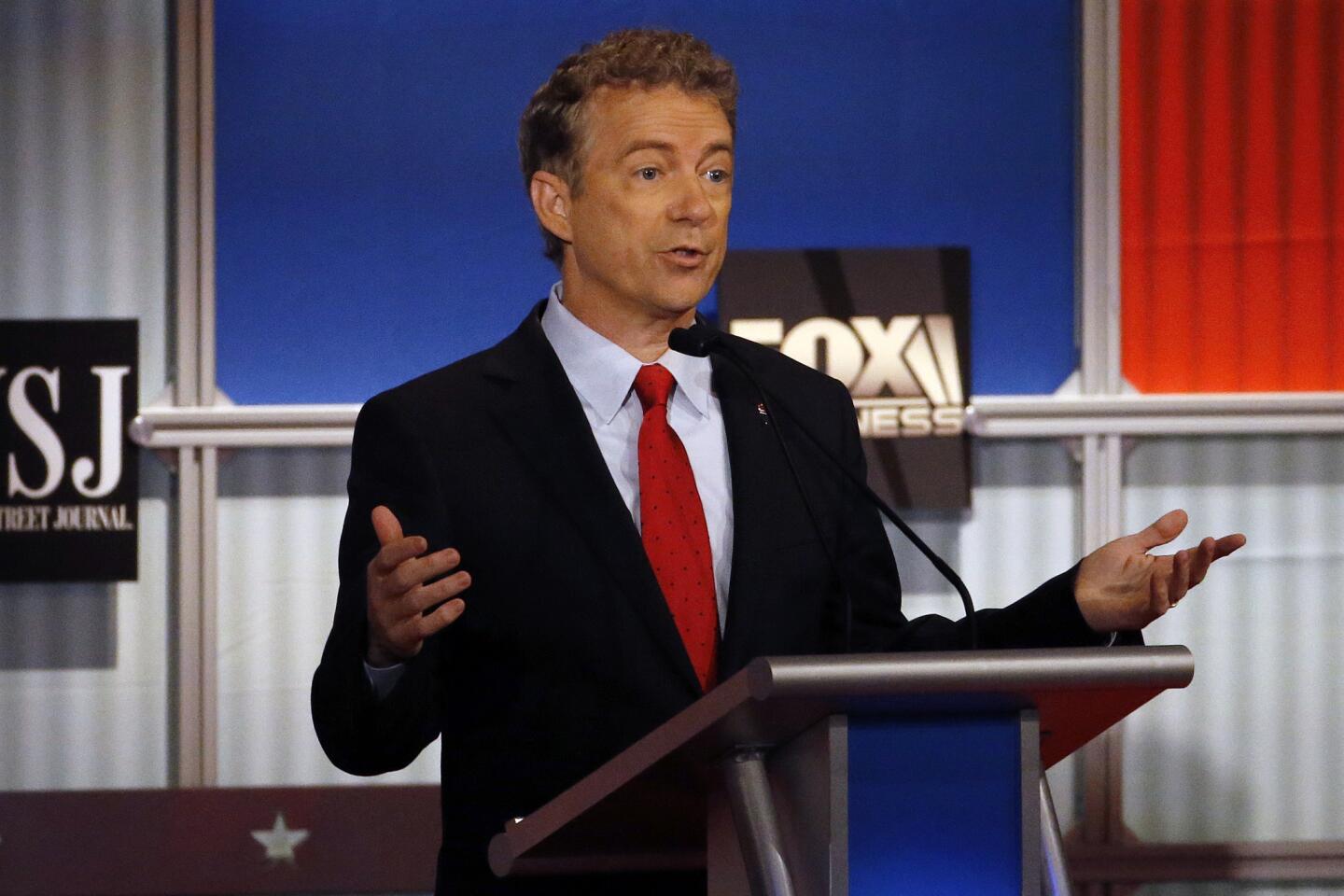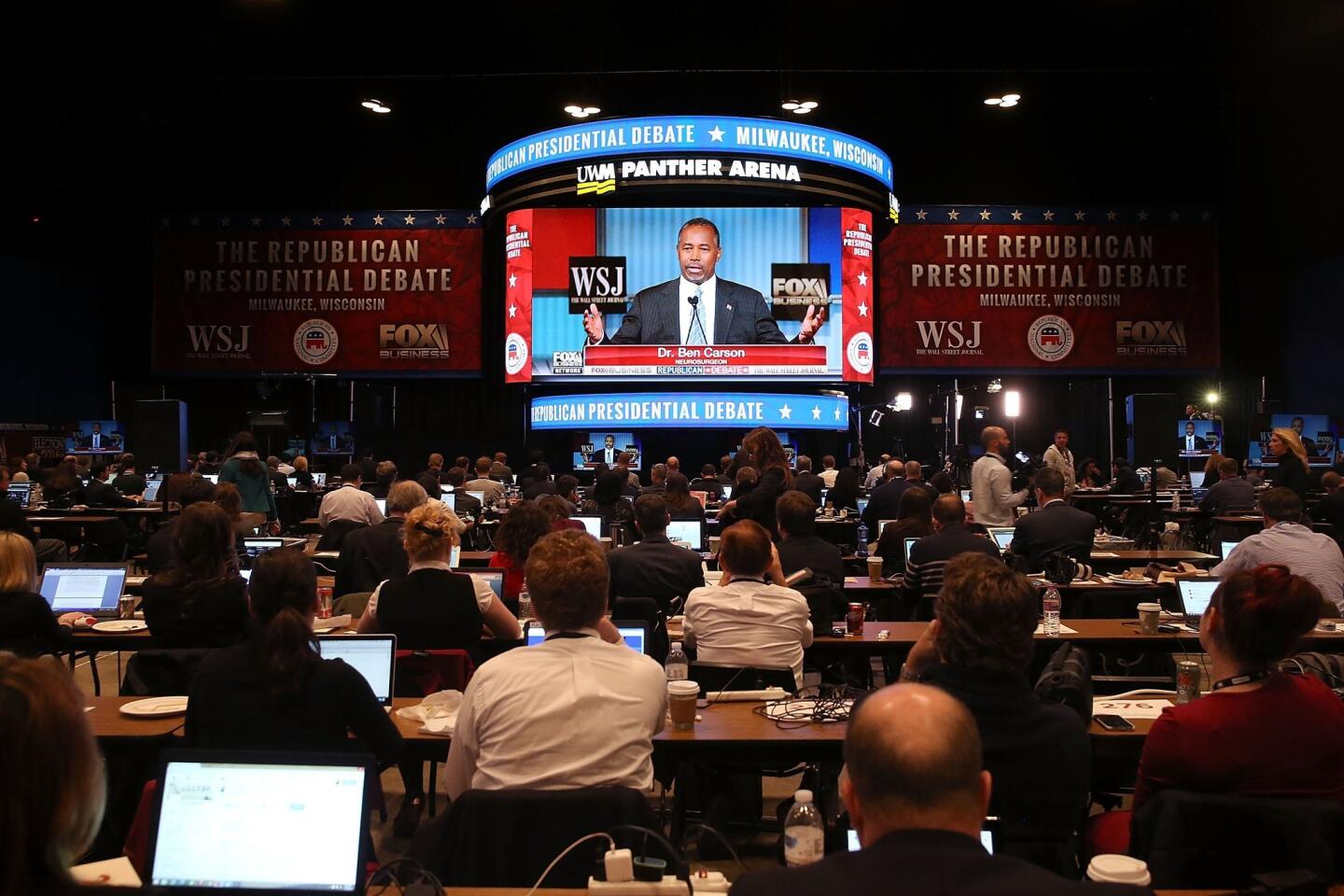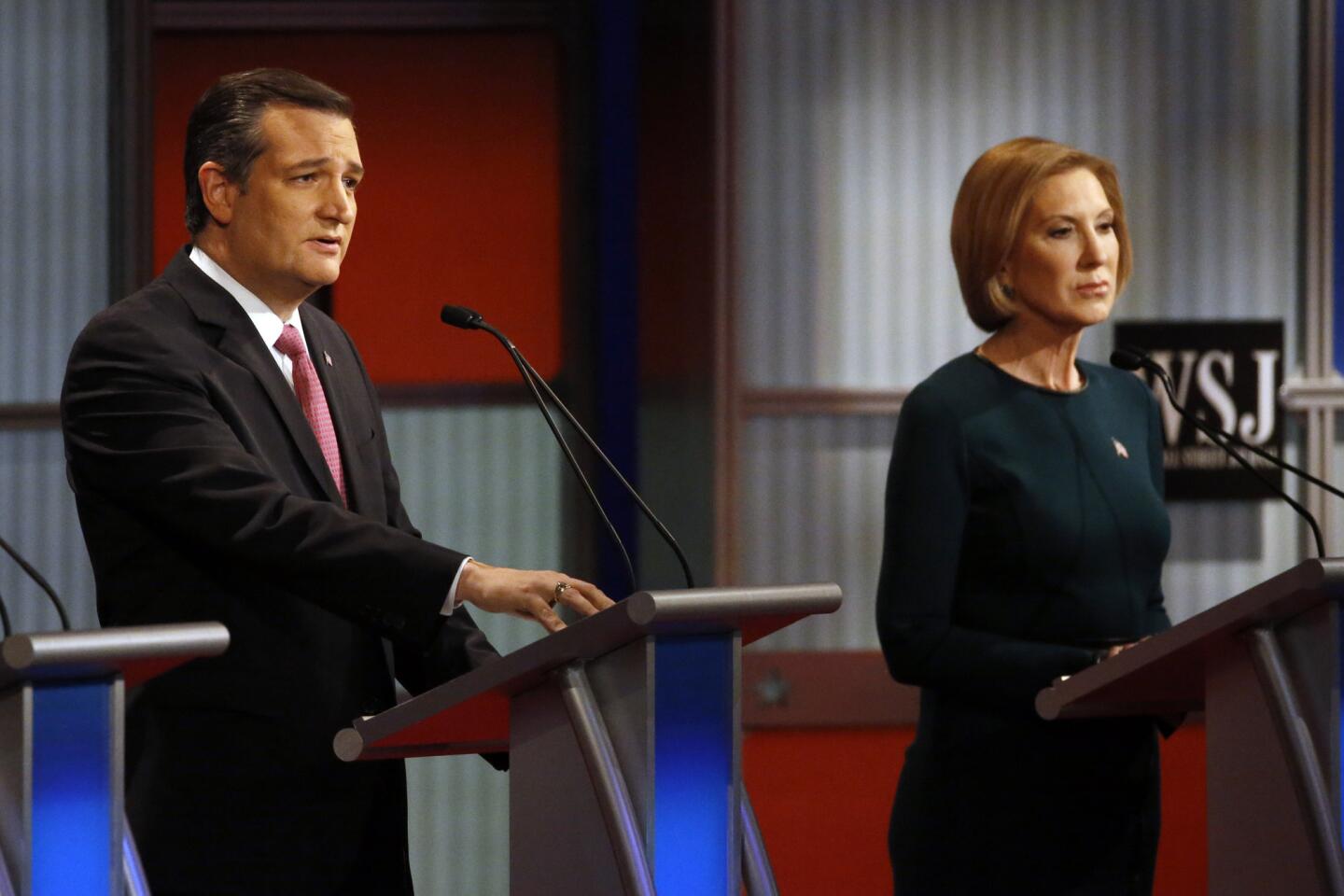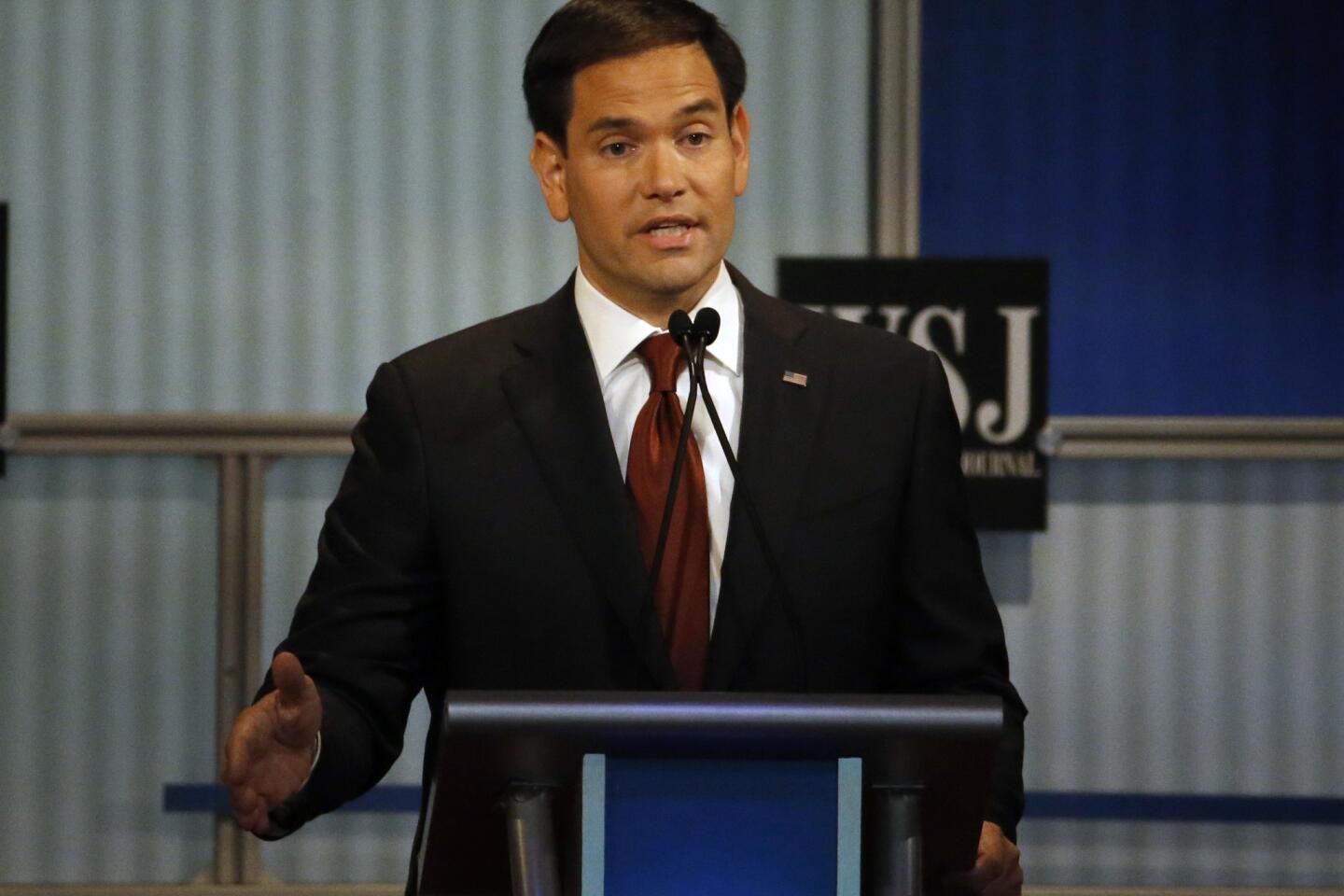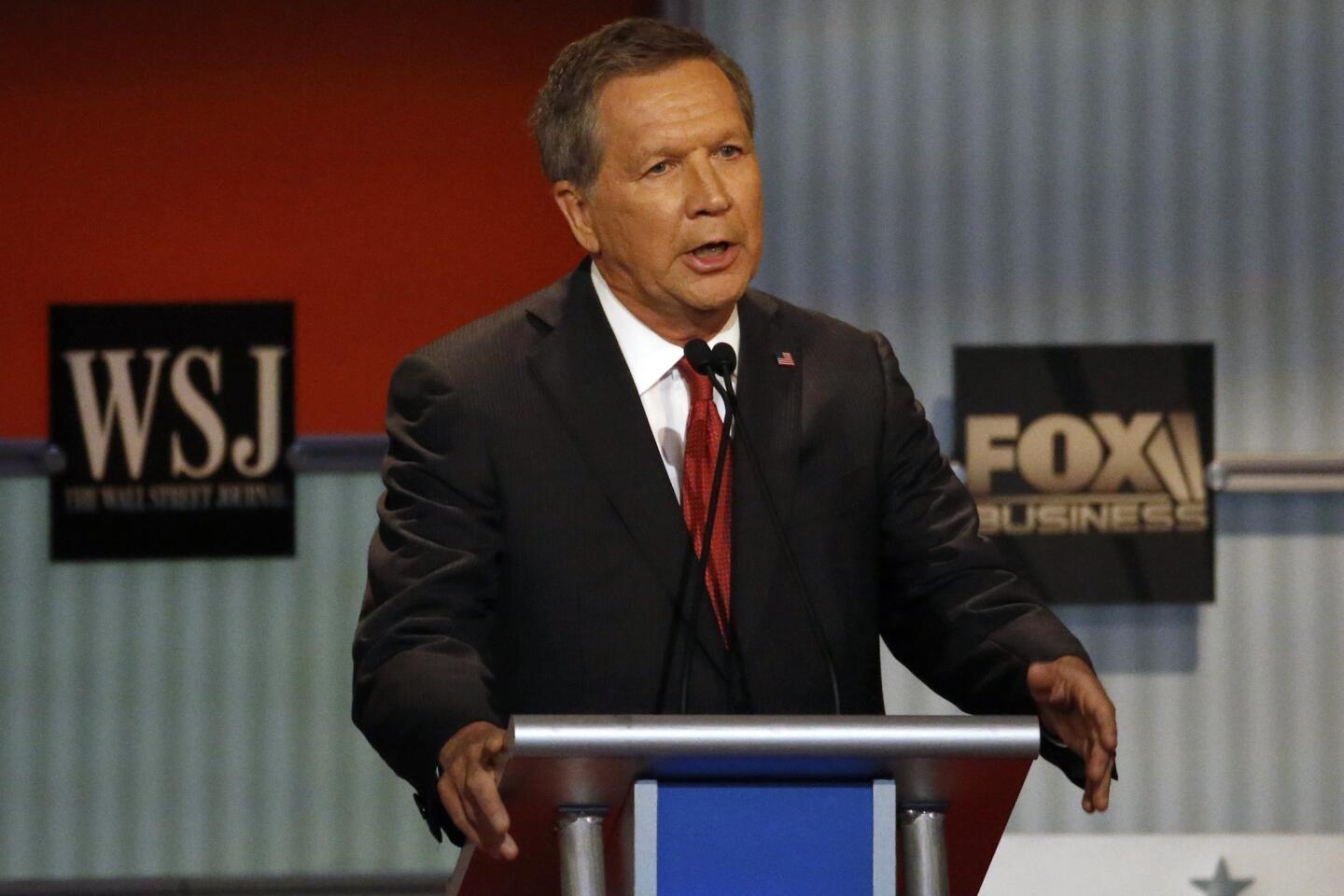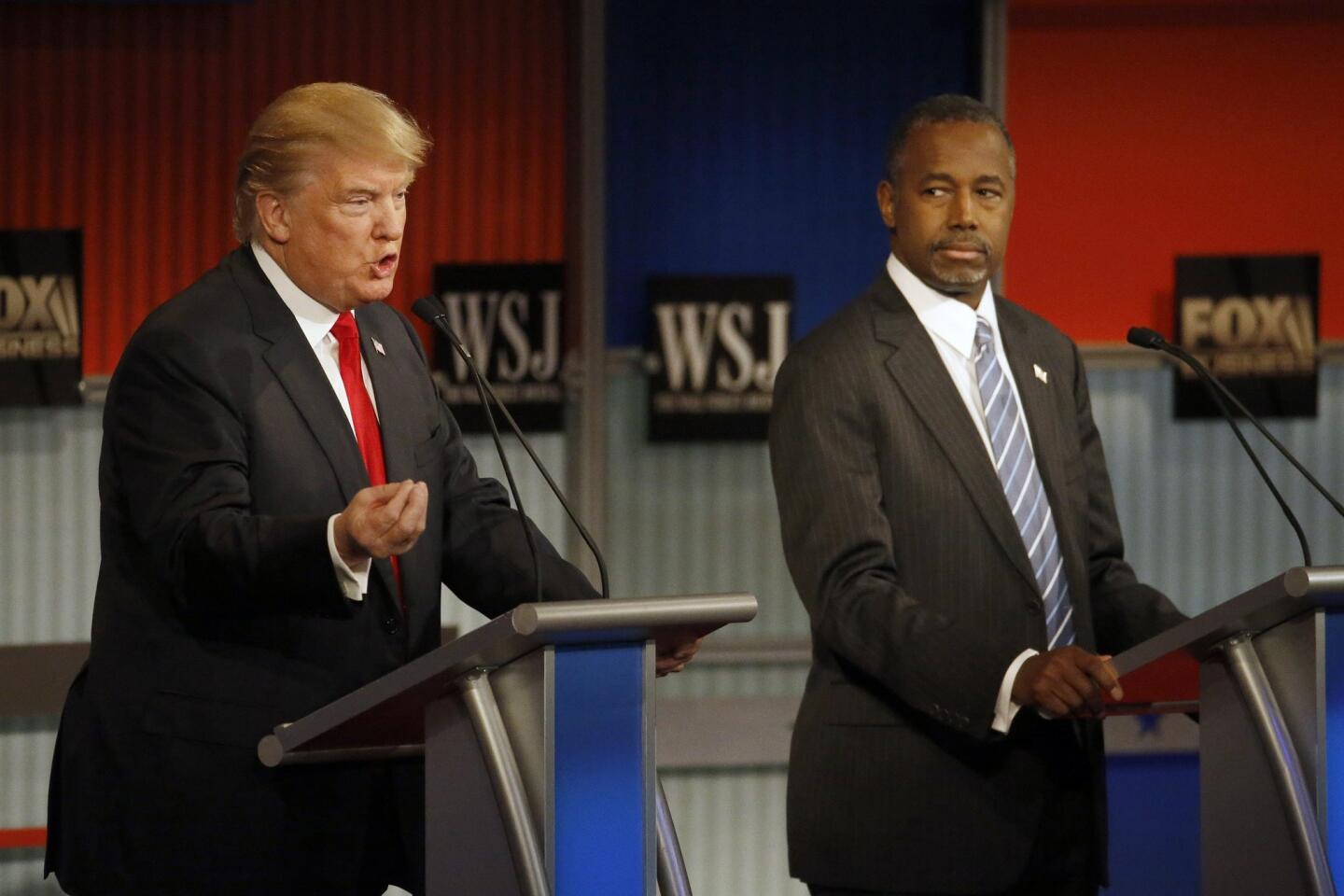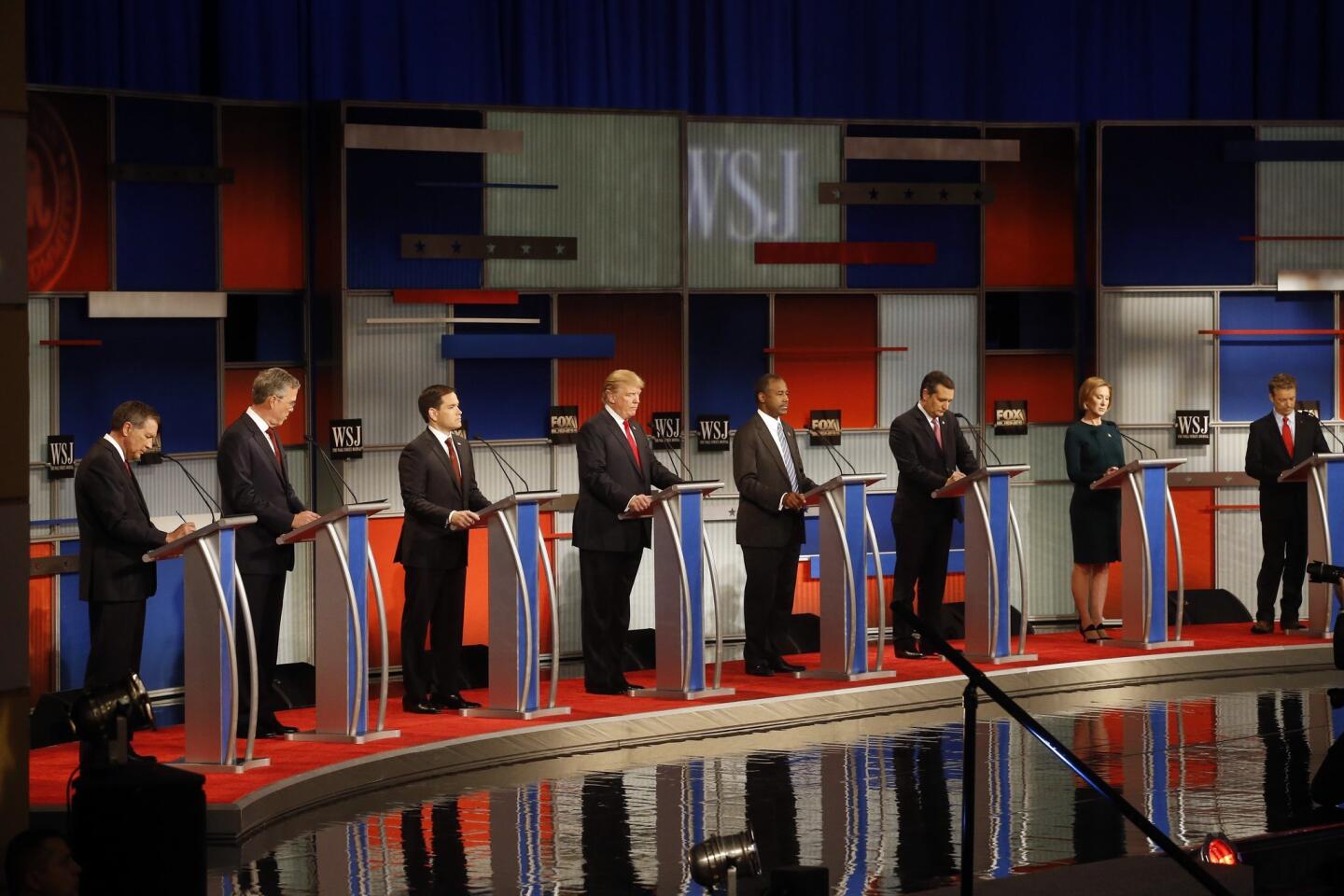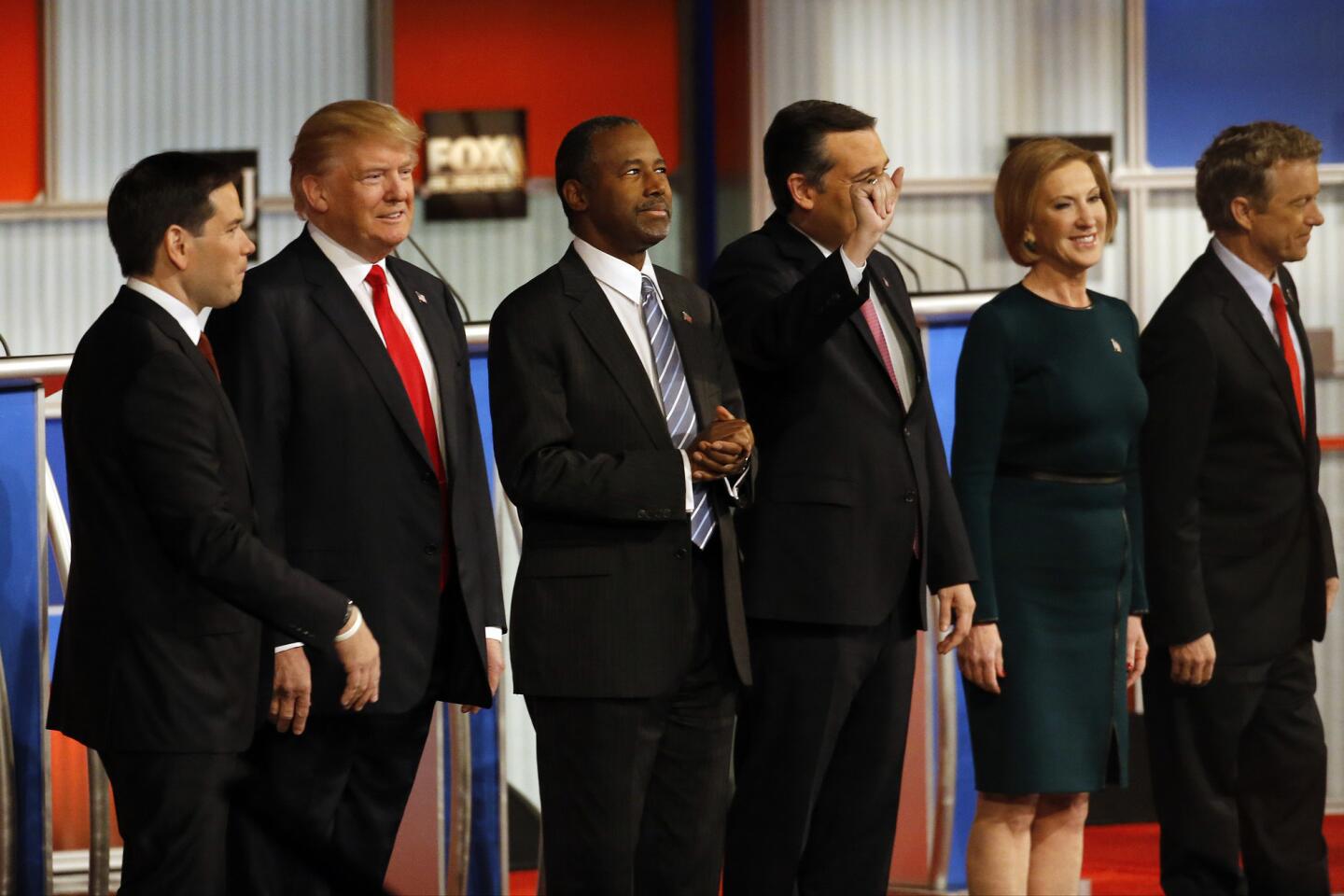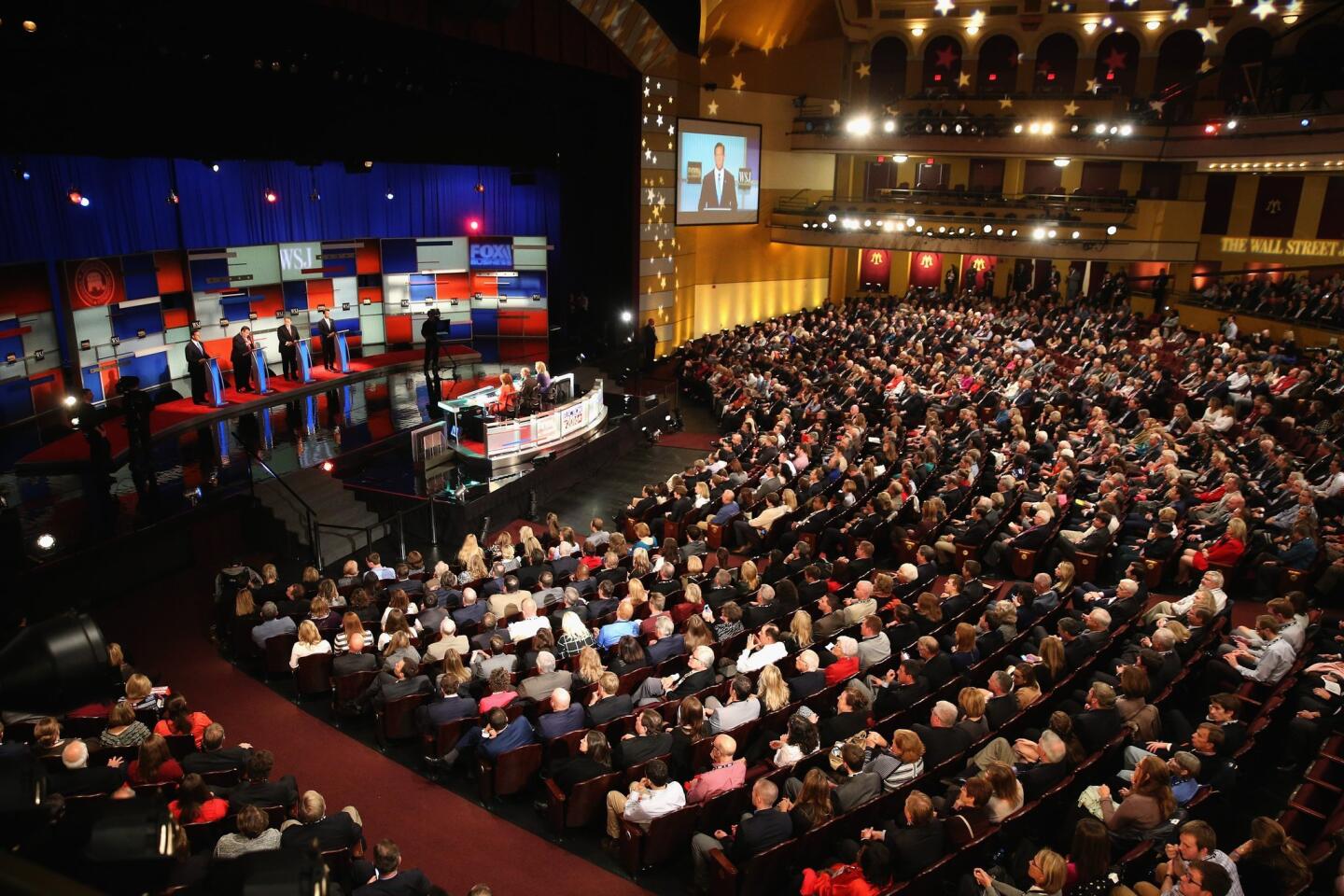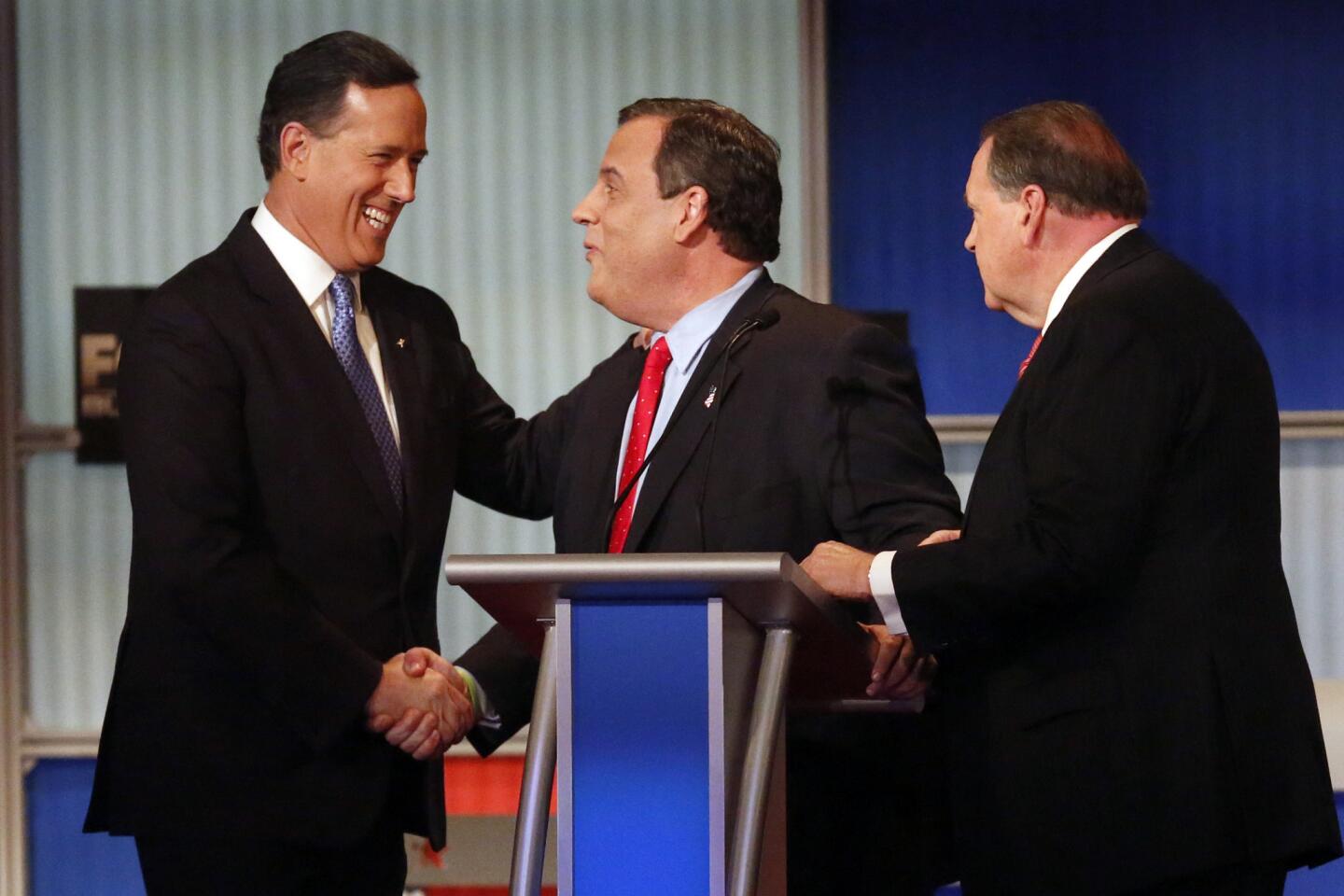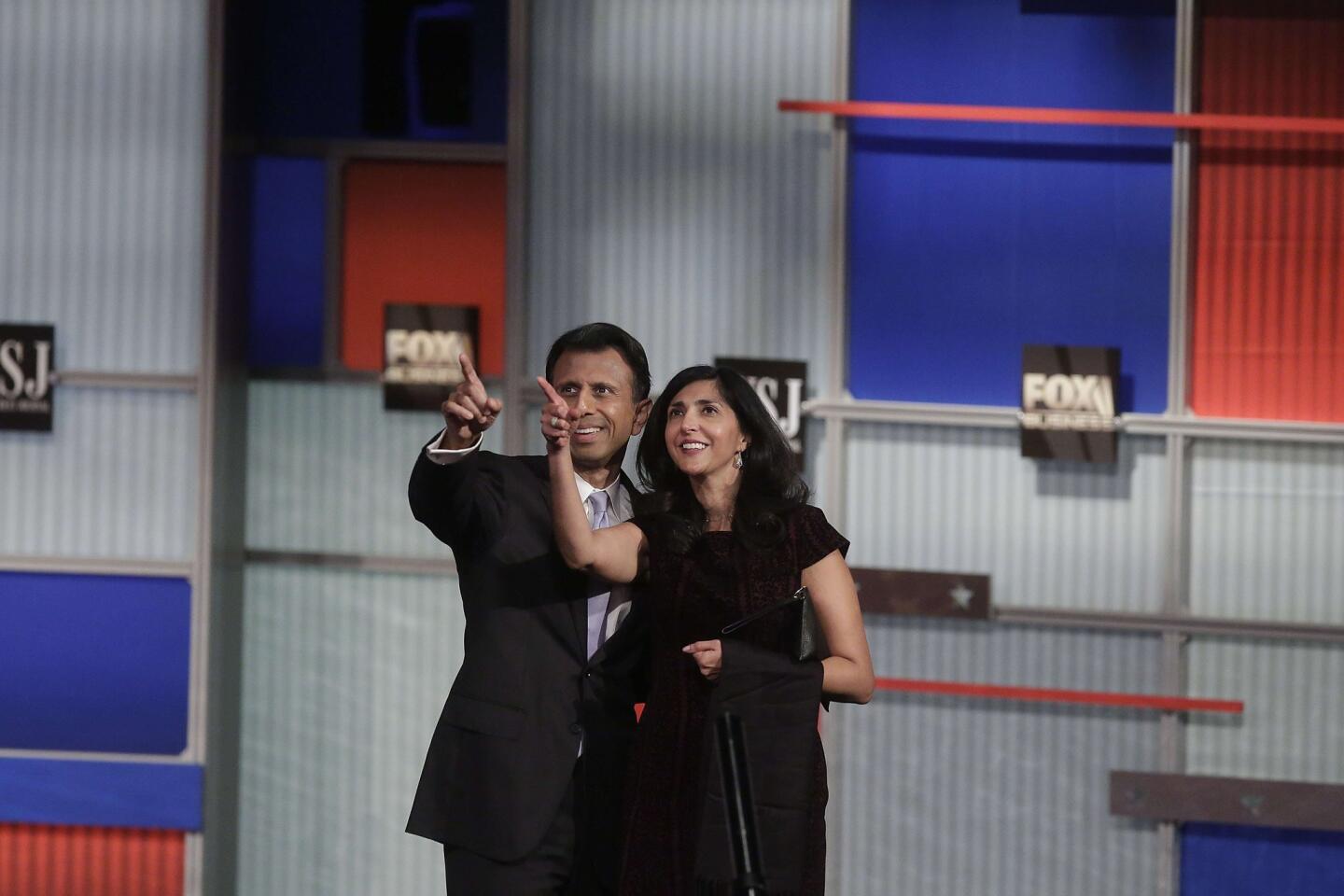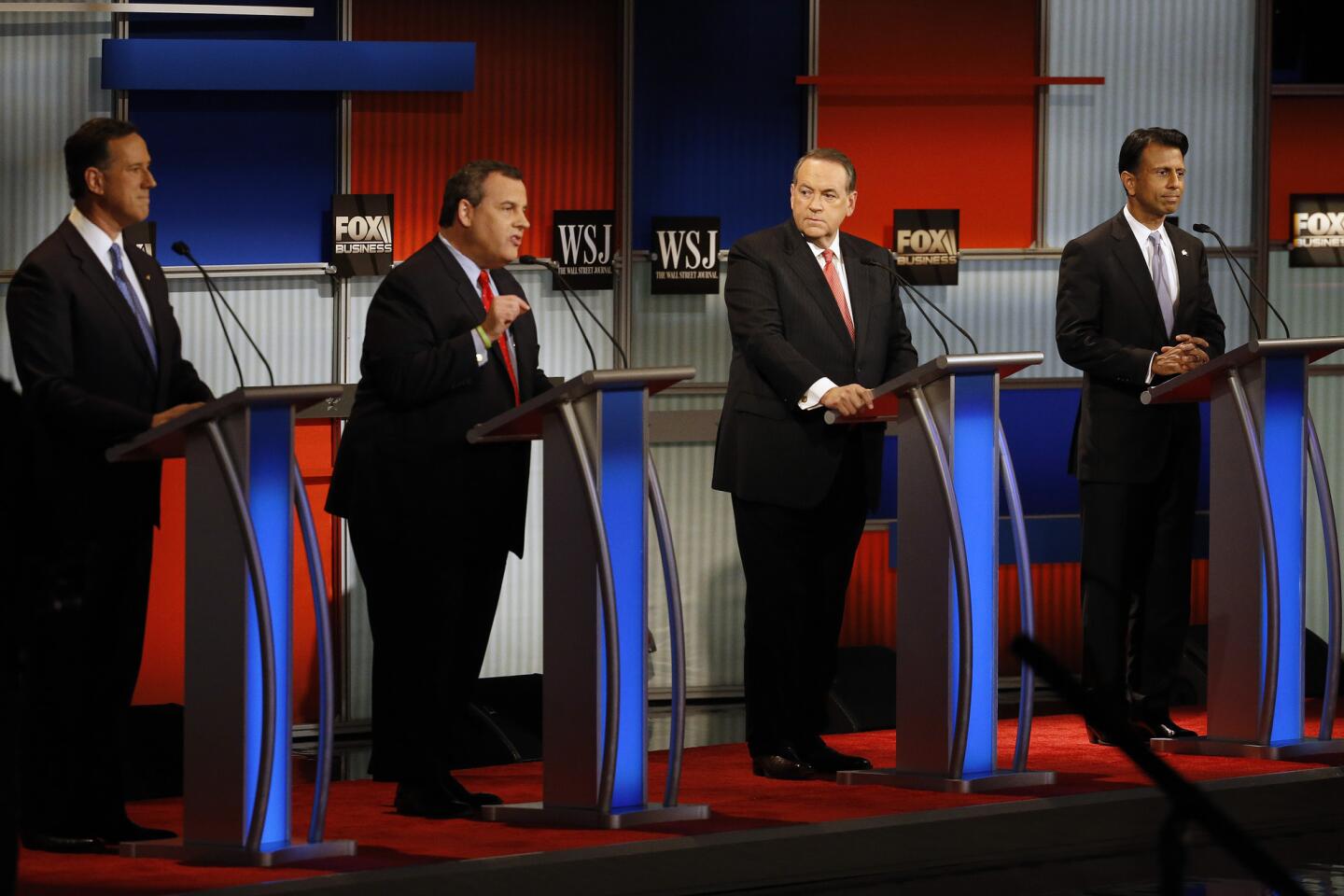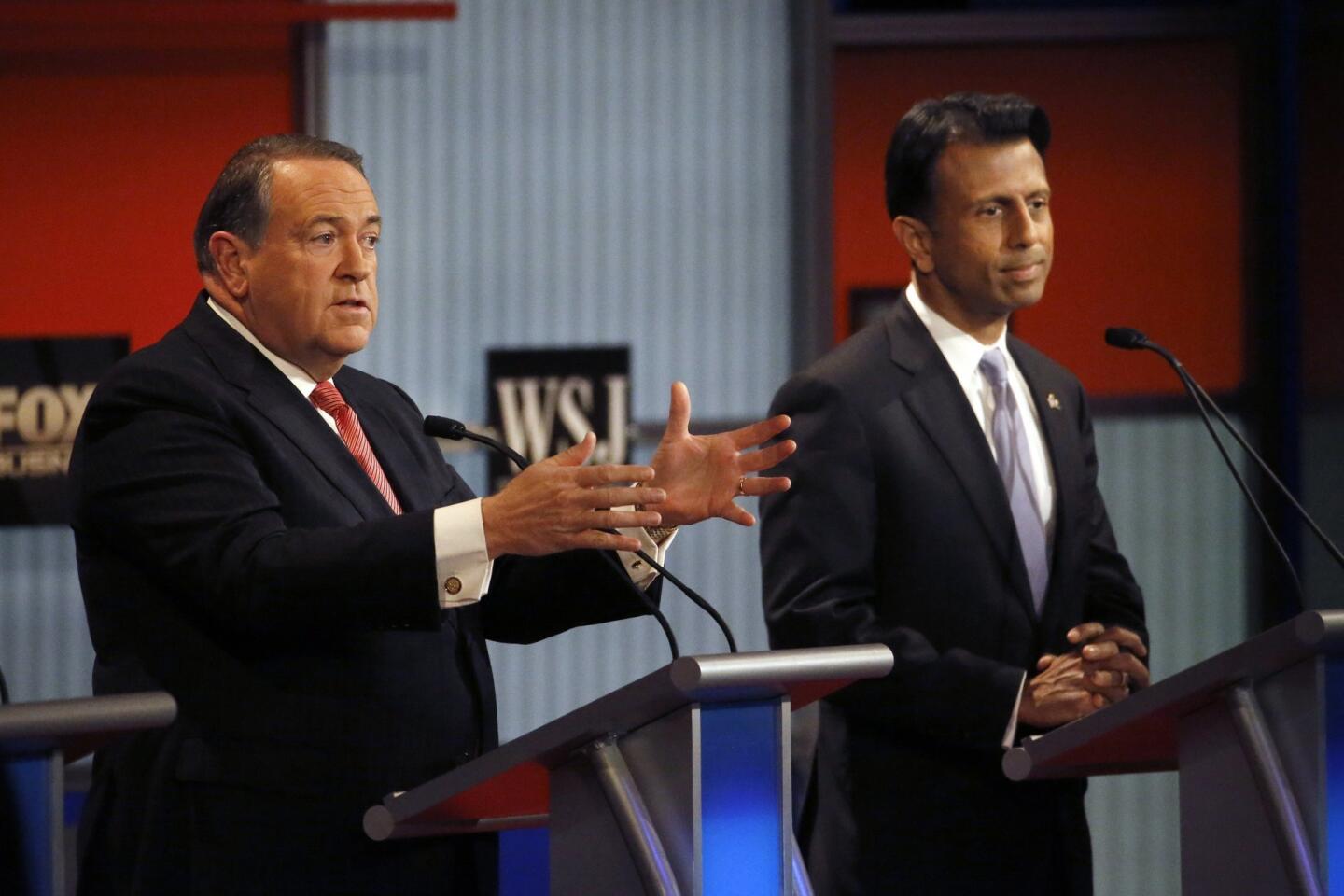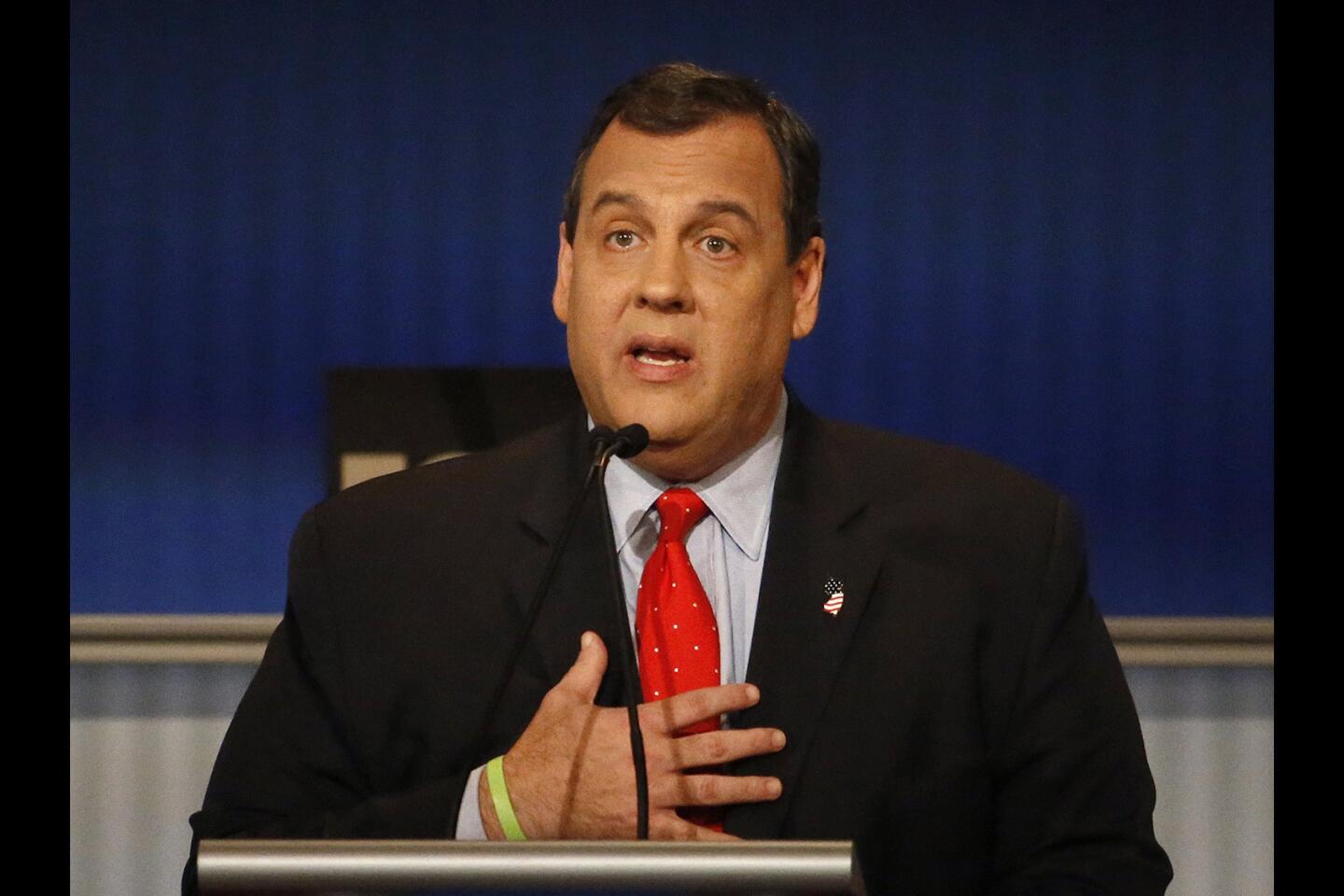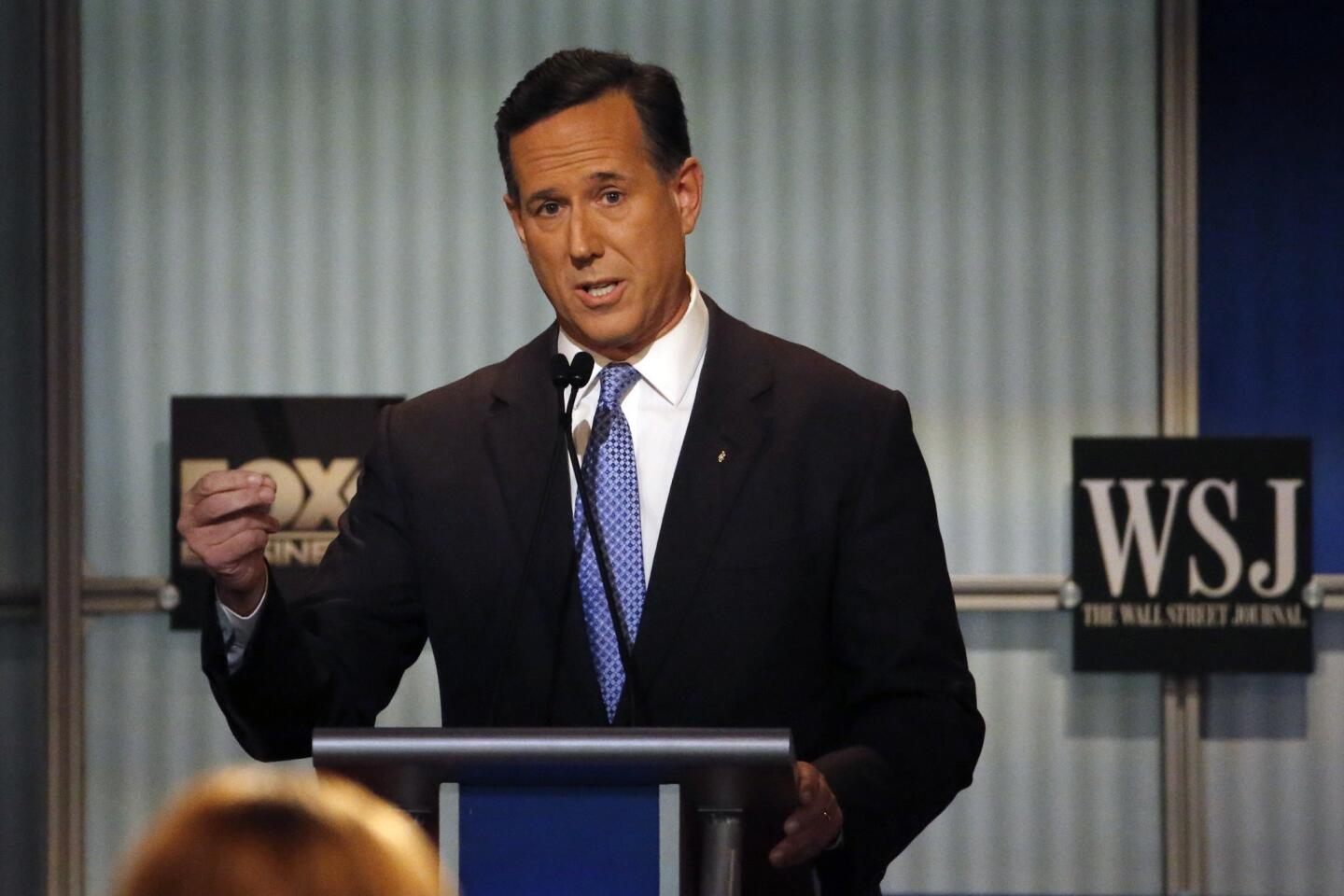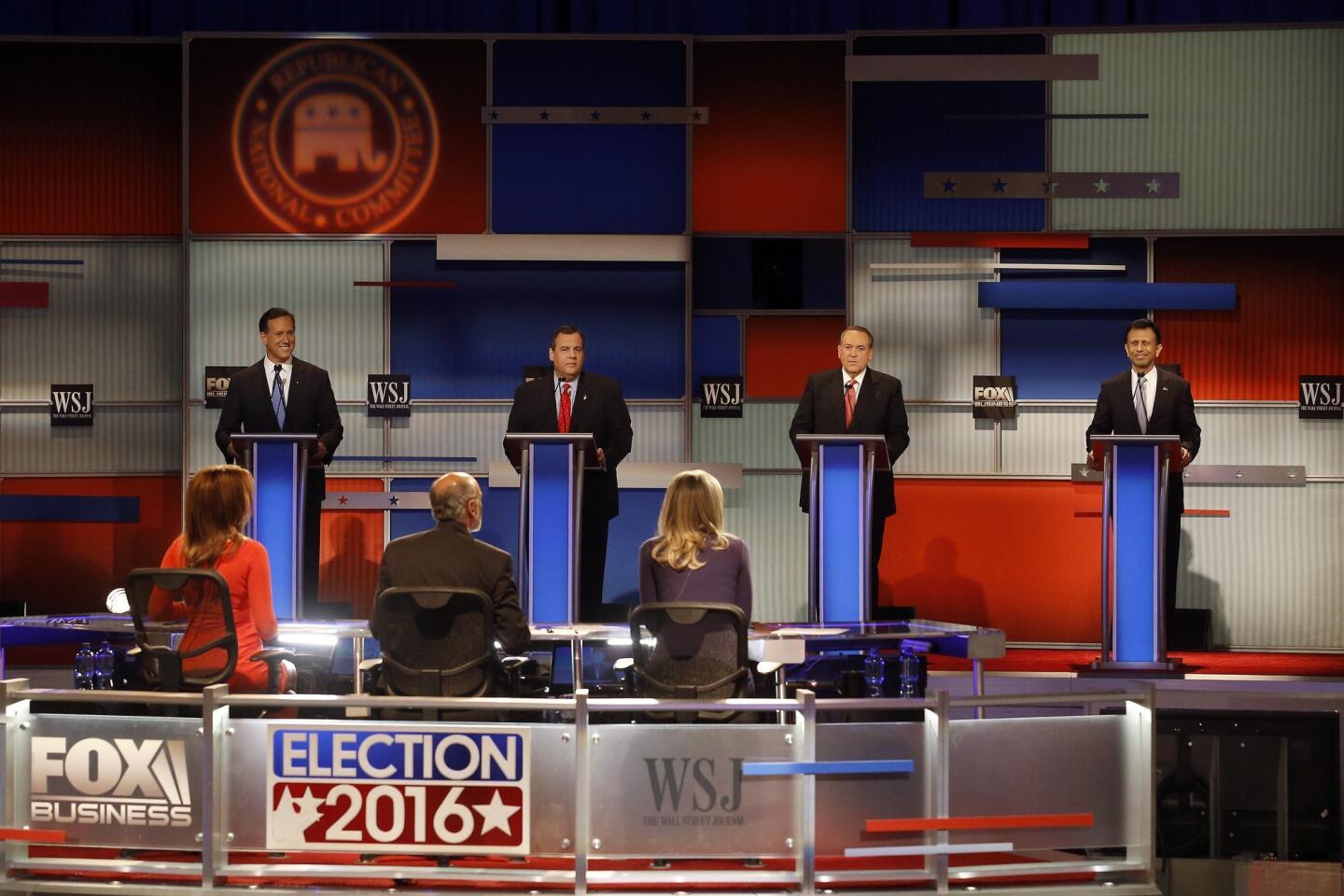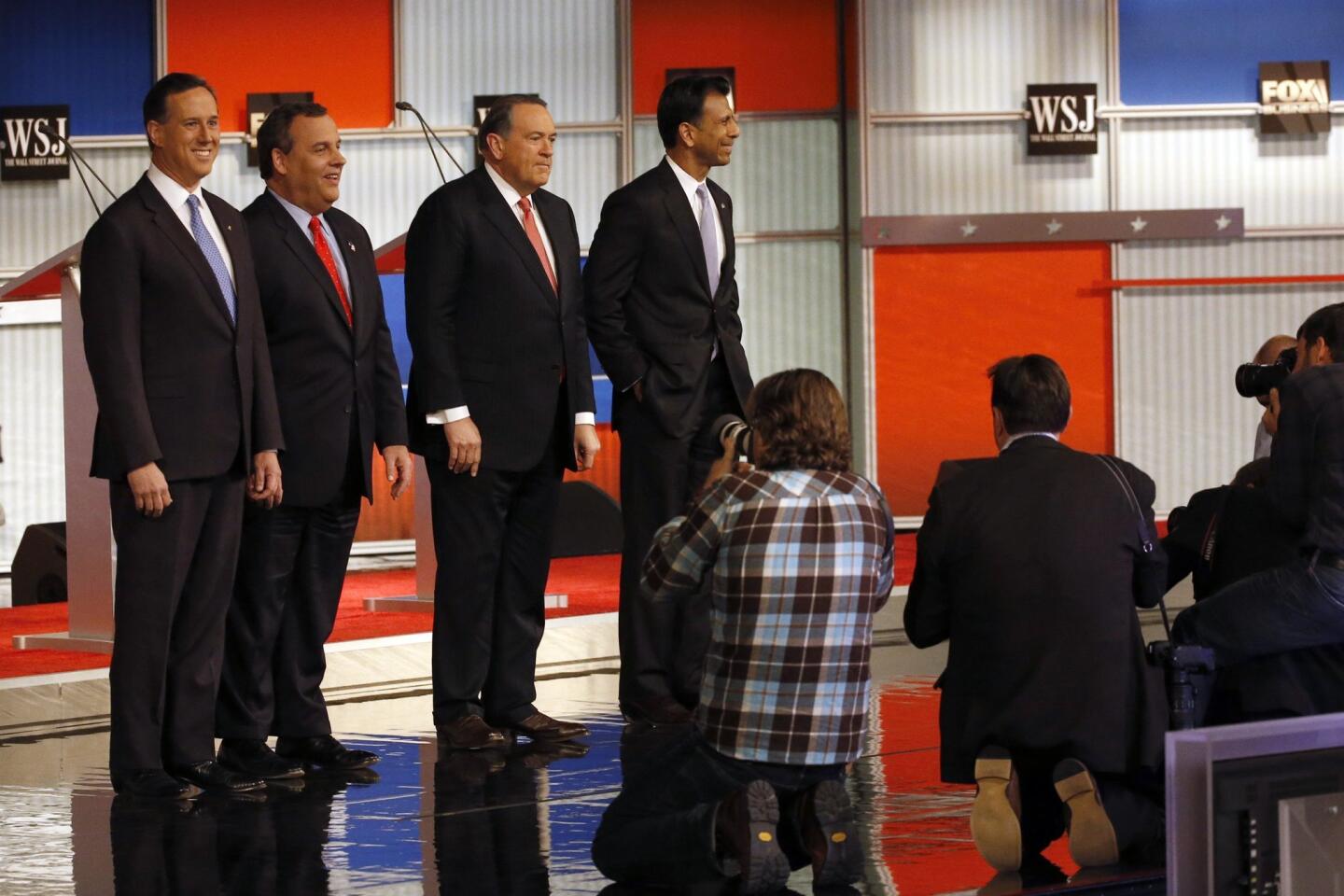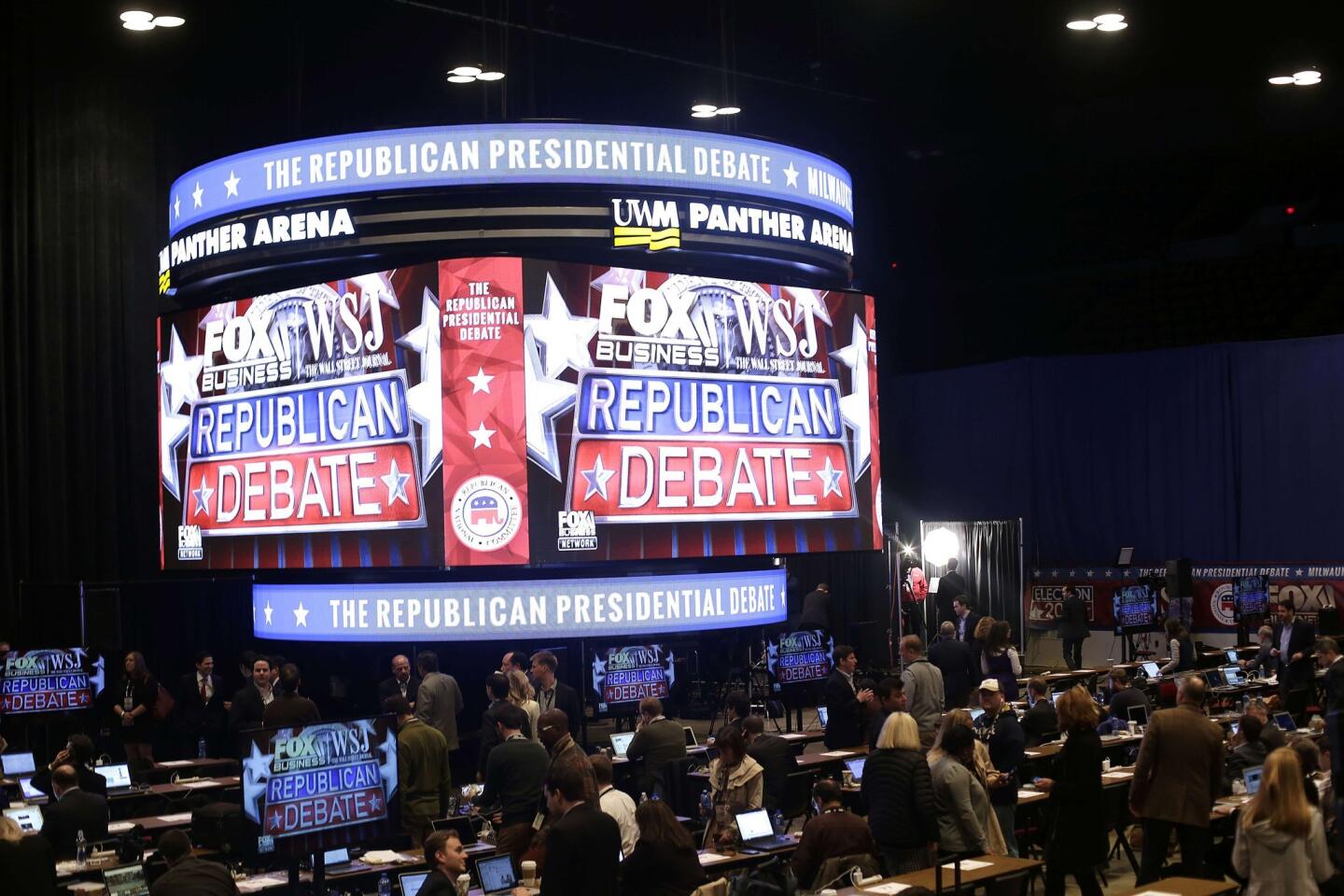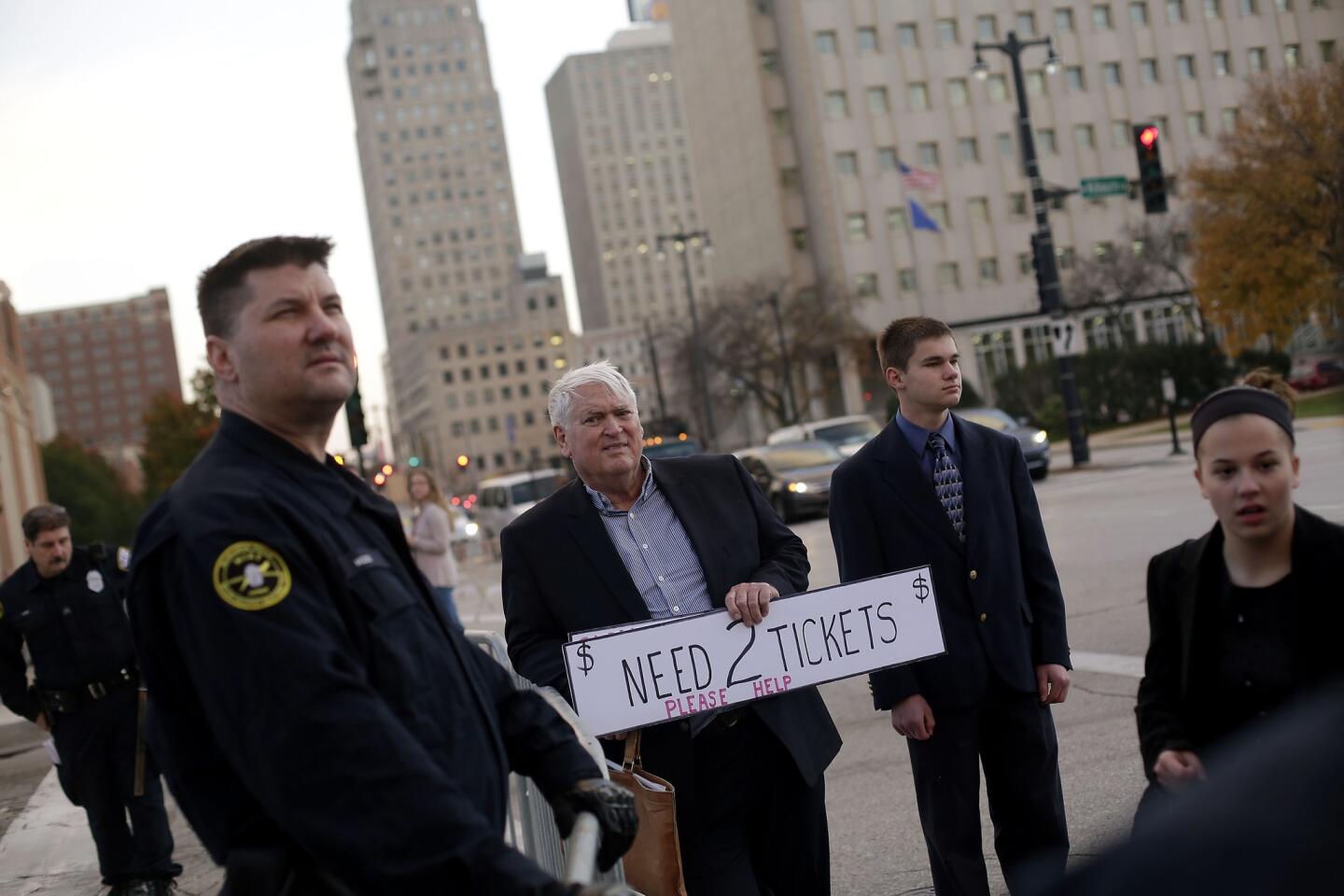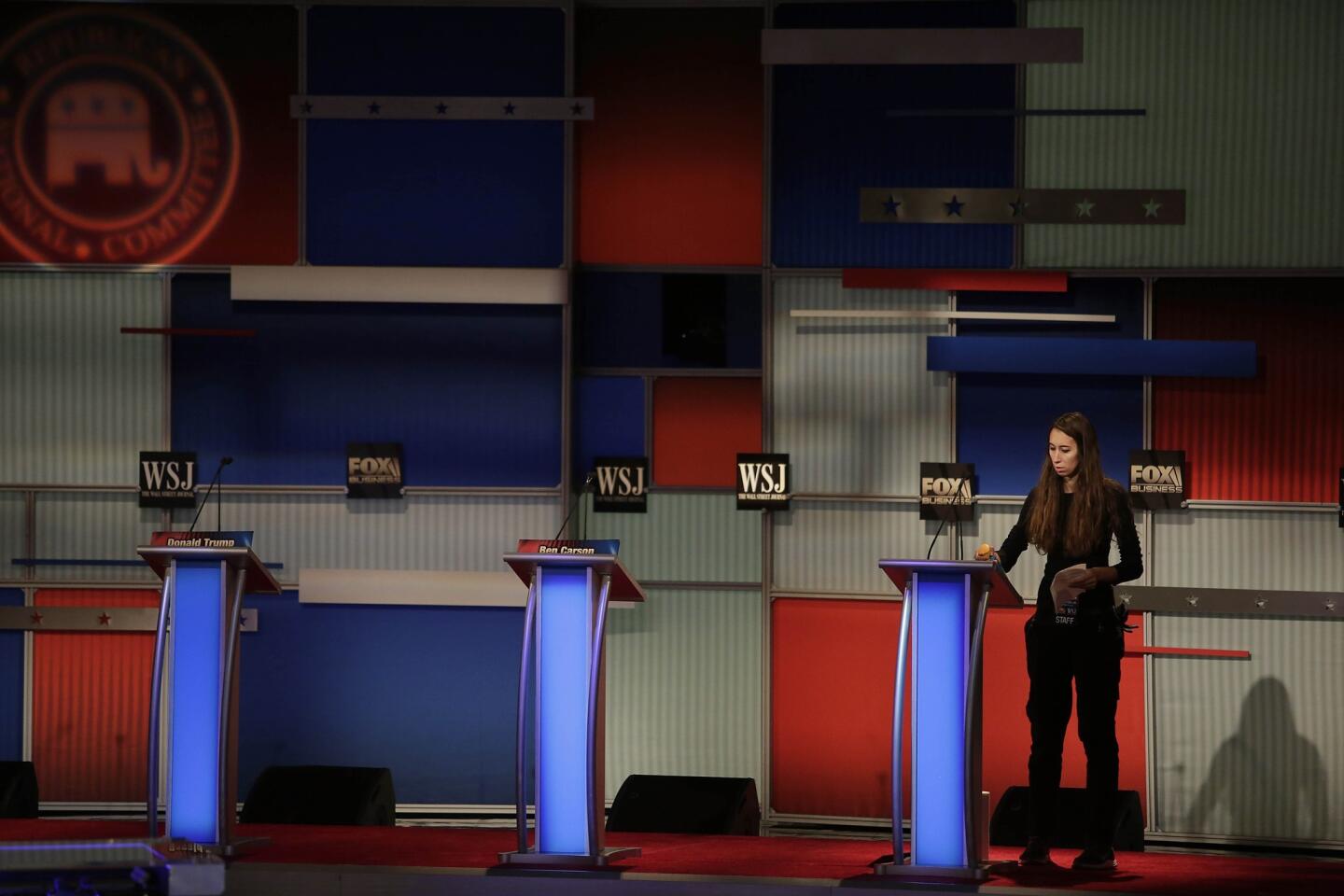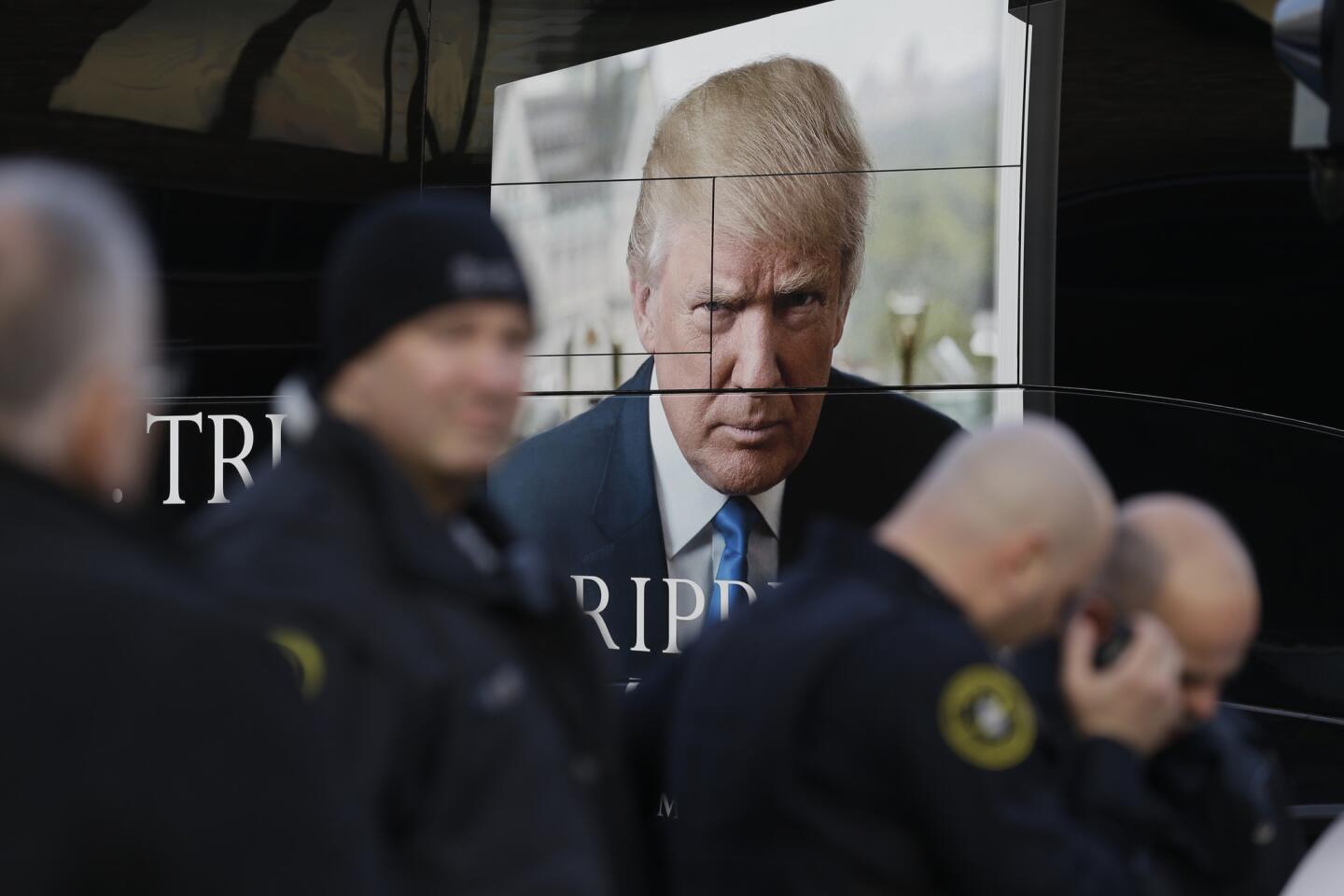Candidates go after Trump, the moderators survive, and other takeaways from the Republican debate
- Share via
Reporting from Washington — 1. The GOP field seems to have figured out how to fight Donald Trump: Belittle him.
Donald Trump has played 2016 titan for months, and most attacks from fellow candidates ended up hurting the attacker. But as Trump fights to maintain his lead, he has appeared more defensive.
And on Tuesday, fellow candidates seemed to get the better of him a few times, winning over the crowd by mocking him.
When Trump started complaining that President Obama’s Pacific trade pact is a trap laid by the Chinese, Kentucky Sen. Rand Paul drew laughs when he pointed out that China was not a party to the deal.
When Trump said Russian President Vladimir Putin could do America the favor of knocking off the Islamic State extremist group, Jeb Bush, the former Florida governor, lectured him as naive: “That’s like playing Monopoly,” he said. “That’s not how the world works.”
And when Trump bragged that he formed a friendship with Putin in the green room when they both appeared on “60 Minutes,” Carly Fiorina, the former Hewlett Packard chief executive, drew laughs when she said she had also met Putin, “not in a green room for a show, but in a private meeting.”
2. The moderators survived.
Republicans complained that prior debates, especially the last one, were filled with too many “gotcha” questions and too much baiting of the candidates to fight one another.
Tuesday’s debate was a sharp contrast, in which the hosts played a mostly deferential role. Moderator Neil Cavuto started by calling out “the elephant in the room,” promising issues would be front and center. “That is the agenda tonight: how each of you plans to make America better tomorrow.”
In other words, we have come to uplift the candidates, not to bury them.
Texas Sen. Ted Cruz, who scored huge in the prior debate by criticizing the questions as being lame, immediately praised the wisdom of his first question Tuesday, about employment – “the most important question any of us can have” – and the talent of his questioner, Maria Bartiromo.
“That’s an excellent question,” Florida Sen. Marco Rubio said at another point.
For the most part, the moderators were deferential, and the candidates seemed to appreciate it.
Will the viewers? We’ll find out when the ratings come out Wednesday.
3. Immigration may be the most divisive issue within the Republican Party.
The candidates had their biggest substantive disagreement here, with Trump and Cruz leading the hard-line position and Bush and John Kasich, the Ohio governor, leading the pushback.
After Trump began discussing the importance of a wall along the Mexican border and deporting the 11 million or so people in the U.S. illegally, Bush said that was both impractical and an abdication of American values. Besides, he added, it is a political loser.
“They’re doing high-fives in the Clinton campaign right now when they hear this,” Bush said.
Cruz took the opposite position, saying, “If Republicans join Democrats as the party of amnesty, we will lose.”
Get more national political news and the latest from Campaign 2016 >>
He cast the GOP establishment in favor of a liberalized immigration policy as elites, insisting that if doctors, lawyers, and journalists were crossing the border, “the politics of it would be very different.”
Demographic trends suggest the general election favors Bush’s and Kasich’s position. But Trump and Cruz are ahead of both in the GOP primary polls.
4. Rubio is at his best when playing defense.
Rubio stayed quiet for long stretches, but he came alive when he was attacked by Paul, showing why many Republican insiders believe he’s the best one to face off against Hillary Rodham Clinton.
Paul challenged whether Rubio’s economic plan is truly conservative because it would increase defense spending by $1 trillion and add a generous child credit to the tax code, something Paul labeled “a new welfare program.”
Rubio stood strong, calling Paul “a committed isolationist” and promoting his sense of family values.
“Yes, I have child tax credit increase, and I am proud of it,” he said. “I am proud that I have a pro-family tax plan.”
5. Several candidates edged in their talking points, but it’s doubtful any took a leap.
Perhaps the most desperate candidate, Bush, had some high points but disappeared for long stretches. Kasich and Paul tried to get air time, but neither seemed to break out.
Carson, the race’s newest front-runner alongside Trump, stood back much of the time and seemed pleased to duck hits about the veracity of his life story, about which questions have emerged in recent days.
Cruz showed why he looks ascendant, taking his shots to expand his base of tea party conservatives and evangelicals.
Follow @noahbierman on Twitter.
ALSO:
In Republican debate, moderators will be in the spotlight
Starbucks cups have some evangelical Christians seeing red
Why are 10% of prisoners on death row veterans, some with PTSD?
More to Read
Get the L.A. Times Politics newsletter
Deeply reported insights into legislation, politics and policy from Sacramento, Washington and beyond. In your inbox twice per week.
You may occasionally receive promotional content from the Los Angeles Times.
